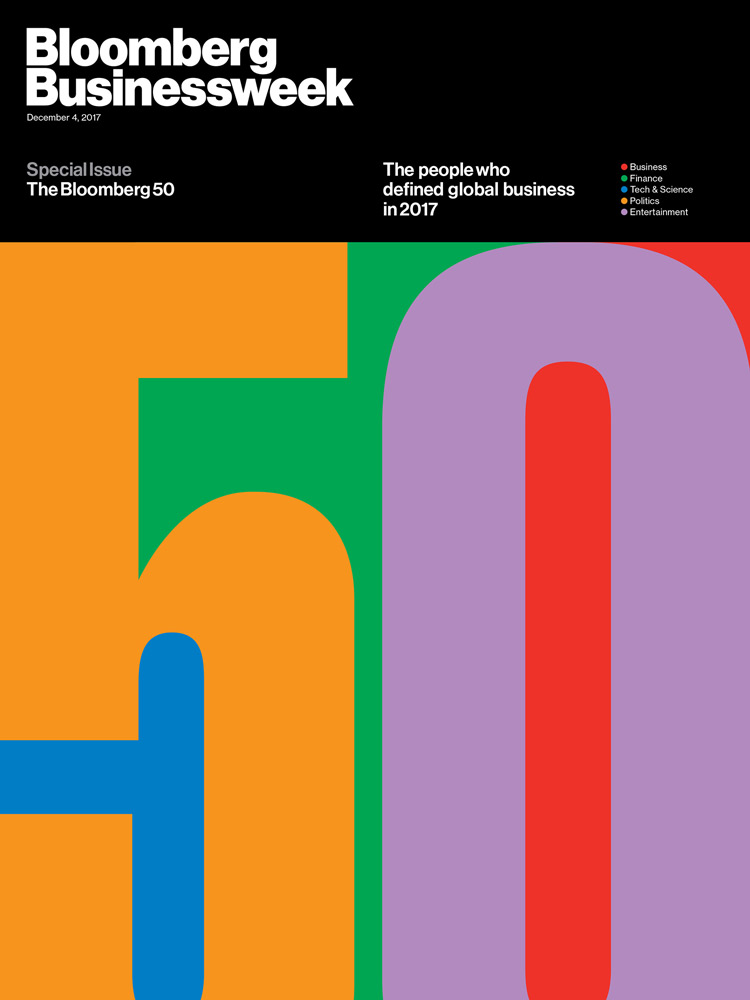
The Bloomberg 50
November 30, 2017
Who defined this year? What if the people who are always on these lists weren’t on this one? These are the questions our reporters and editors around the globe sought to answer with the first Bloomberg 50: the executives, entrepreneurs, experts, and entertainers whose 2017 merits applause and recognition—or, in a few instances, just recognition. So if you don’t know who Yoshiaki Koizumi, Marty Chavez, Luhan Yang, Luisa Ortega Díaz, and Agnes Gund are, that’s OK, keep reading. And once you’re done with 2017, check out the people to keep an eye on next year.

Nikki Haley
Watch Video
U.S. ambassador to the United Nations
On Sept. 11, Haley pushed through a Security Council agreement to impose the toughest-ever sanctions on North Korea, limiting the country’s oil imports and banning its textile exports, which will deprive Pyongyang of what Haley estimated is 90 percent of its export revenue.
On her first day at the UN in January, Haley warned other diplomats: “For those who don’t have our back, we’re taking names.” Bold pronouncements have informed the rest of her tenure, too. At times, Haley has gone further than President Trump—she condemned Russia’s “aggressive actions” in Ukraine and Syria, using harsher language than he did—but the ambassador nevertheless has become the White House’s trusted voice in opposing the Iran nuclear deal. It’s fair to say that, more so than any other Trump appointee, when she speaks, Haley is speaking for him.

Kotick raised $240 million selling 12 franchises for the first city-based professional esports league, testament to the seriousness with which the traditional sports universe is viewing competitive gaming.
Bobby Kotick
Watch Video
CEO, Activision Blizzard Inc.
When Kotick pitched New England Patriots owner Robert Kraft on an esports franchise this year, it wasn’t the first time. Sitting in the owner’s box at a Pats game with several other CEOs in 2016, Kotick described to them a league in which professionals play video games before live audiences. He said he was going to sell local franchises for a shooter game that Activision was releasing called Overwatch. He was bombarded with questions, but he didn’t have all the answers. So he began hiring executives with sports experience to advise him. In March, Kotick once again pitched Kraft and other execs in a meeting that ended with Kraft slapping Kotick on the cheek and saying, “We’re in.” The inaugural Overwatch League will feature teams from cities such as New York, London, and Seoul and owners including Comcast Corp. and Los Angeles Rams owner Stanley Kroenke. Matches will get under way on Dec. 6.

In November, the prince ordered the arrests of 11 cousins and dozens of current and former officials and prominent businessmen in a play to consolidate power.
Mohammed bin Salman
Watch Video
Crown prince, Saudi Arabia
Although his endgame is far from certain, the prince’s most powerful tool for reshaping the Saudi economy remains his plan—set for next year—to sell a stake in state oil giant Saudi Arabian Oil Co., which could be the biggest initial public offering in history. He continued to upend tradition this year by pushing to allow women to drive, a decision that’s forecast to add $90 billion to the economy by 2030. The prince is also maneuvering to ensure that the Saudi sovereign fund is the world’s largest, agreeing to commit $20 billion to an infrastructure investment pool with Blackstone Group LP for projects mainly in the U.S. and $45 billion over five years to SoftBank’s Masayoshi Son’s $93 billion Vision Fund.
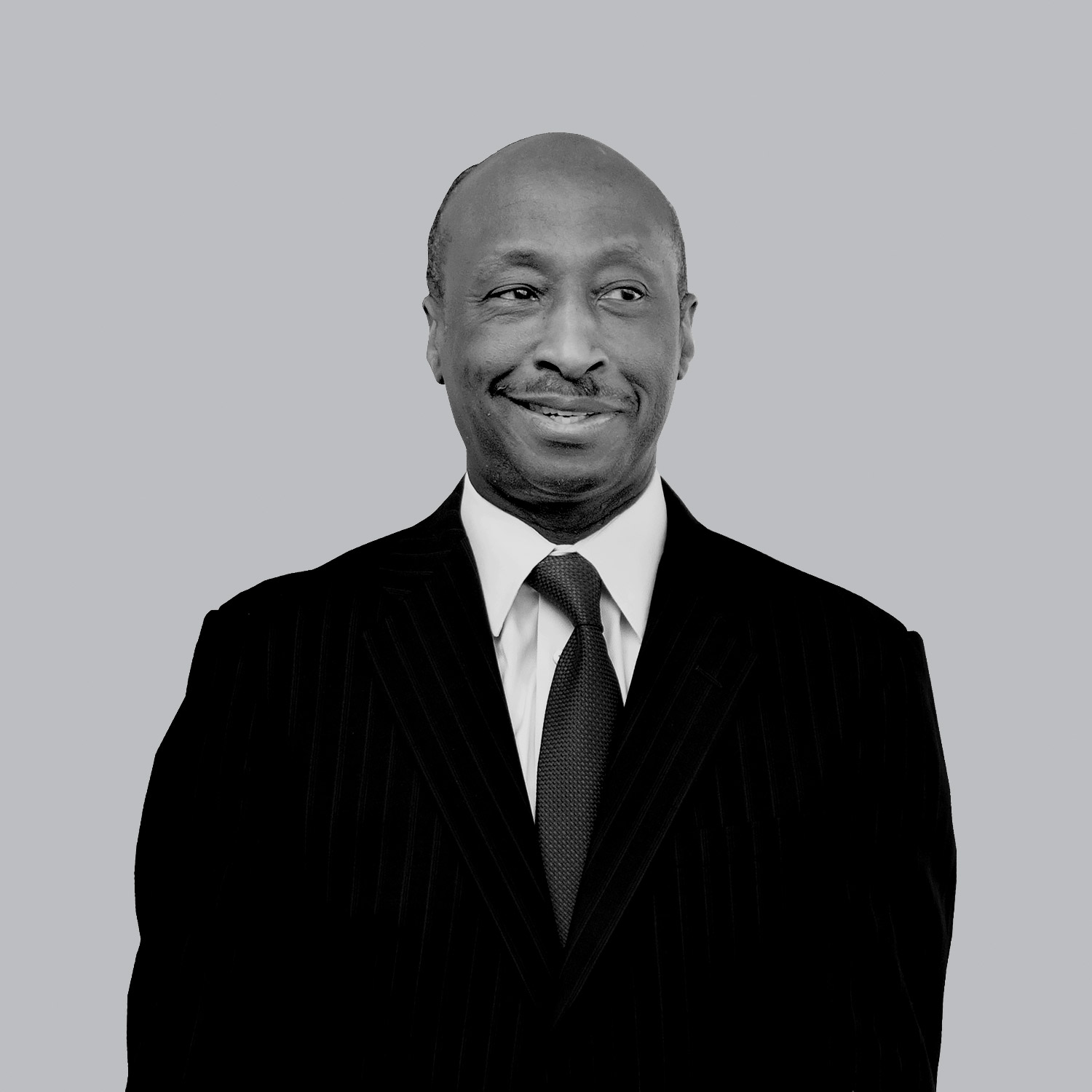
By being the first executive to resign from Donald Trump’s American Manufacturing Council following the president’s divisive comments on Charlottesville, Va., Frazier all but ordained the group’s dissolution.
Ken Frazier
Watch Video
CEO, Merck & Co.
Frazier reminded the country that serving as a chief executive in 2017 is about more than just delivering quarterly returns: “As CEO of Merck, and as a matter of personal conscience, I feel a responsibility to take a stand against intolerance and extremism,” he said in a statement, after Trump failed to condemn white supremacists. And yet Frazier has delivered returns, too. In May, Merck’s blockbuster cancer drug, Keytruda, further widened its lead over rivals when the U.S. Food and Drug Administration approved it to be taken in combination with chemotherapy for previously untreated advanced lung cancer, one of the most lucrative markets for drugmakers.

Singh transformed herself from internet personality to media mogul with How to Be a Bawse, which hit No. 1 on the New York Times business book best-seller list in May while she was on an 11-country tour.
Lilly Singh
Watch Video
YouTube star and author
The 29-year-old’s witty and woke YouTube skits—whether observational (“What Really Happens in a Women’s Washroom”), boundary-pushing (“The Rules of Racism”), or goofy (“Drake Goes Trick or Treating on Halloween”)—have sparked a mini-empire beyond her 12.5 million subscribers. In addition to sold-out tour dates, Singh, whose username is ||Superwoman||, was tapped to be the first Unicef ambassador for the digital arena, and earlier this year she filmed a role in HBO’s adaptation of Fahrenheit 451, which will premiere in 2018. Partnerships with Coca-Cola Co. and Smashbox cosmetics helped rank her third on Forbes’s list of highest-paid YouTube stars in 2016, at $7.5 million, up from $2.5 million the year before—and that was before she became a multiplatform success story. Singh doesn’t draw distinctions among screens big, small, or laptop-size, however. “Those divisions are less relevant in today’s world, especially to kids,” she says.

Masayoshi Son
Watch Video
Founder, Softbank Group Corp.
Son raised $93 billion to create the largest-ever technology investment fund, a pool of capital that will let him bet on the future of ride-hailing, artificial intelligence, connected devices, satellites, and the integration of computers and humans.
Through the immodestly named Vision Fund—which he expects will grow to $100 billion by yearend—and SoftBank, Son engineered the top venture investments in China (ride-sharing company Didi Chuxing), India (e-commerce business Flipkart), and Southeast Asia (ride-hailing startup Grab), and he’s in talks for a stake in Uber Technologies Inc. Skeptics worry that his aggressive dealmaking will drive up acquisition prices in the already cash-rich tech industry and hurt returns for everyone, but Son isn’t fazed. “I’m so excited,” he said in July. “It really feels like sleeping is a waste of time.”
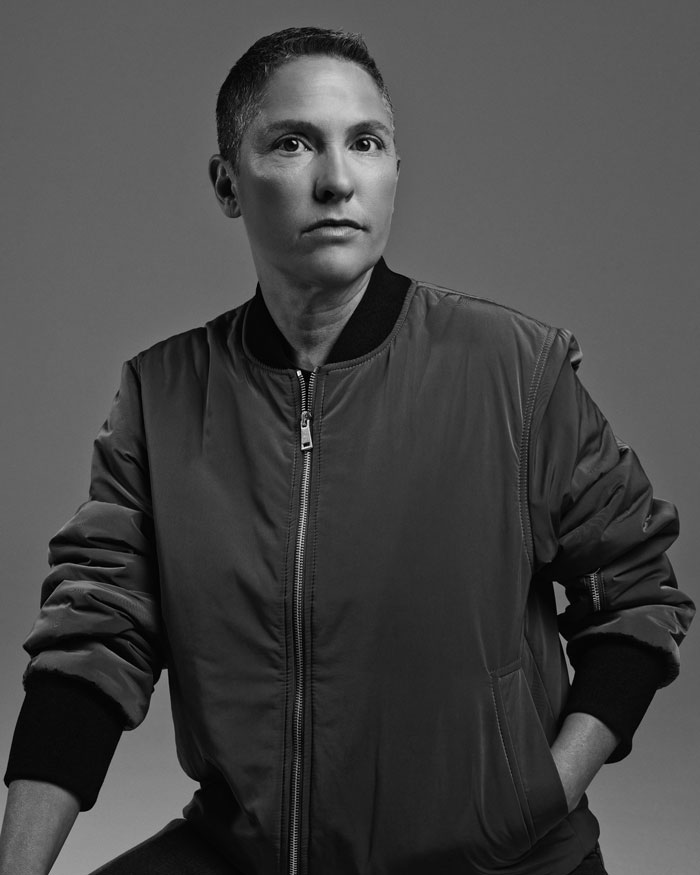

Jill Soloway and Patty Jenkins
Watch Video
Creator and executive producer, Transparent and I Love Dick; Director, Wonder Woman
Soloway scored seven additional Emmy nominations for Transparent and inked a three-year deal with Amazon Studios to develop a slate of 20 original series and feature films. The first woman to helm a studio superhero movie and only the second to oversee a $100 million-plus budget, Jenkins dominated the international box office: Wonder Woman has made $822 million and counting, smashing a record for the highest-grossing movie with a female director.
David Walters spoke to Soloway and Jenkins about why diversity and bankability in Hollywood shouldn’t be considered mutually exclusive. Edited excerpts:
David Walters: Why don’t women hold a larger percentage of behind-the-camera roles?
Patty Jenkins: The biggest thing holding female directors back has always been that there was only one audience everyone was aiming for. But storytelling is for everyone, and there’s not one type of person it can be done through.
Jill Soloway: I’ve heard the phrase “opportunity hoarding,” and I’m sure you’ve noticed it, too, Patty. When I direct, I think, Oh, my god, I’ve created an entire safe universe around my own desires and dreams. No wonder men didn’t make it easy for us to do this! No wonder they made it seem too hard for anyone else to figure out!
So what can be done?
Soloway: I say to those white, heterosexual men who are telling their own stories over and over: “Produce other people’s work. Find women, people of color, queer people. Meet them at the center of their storytelling, and let them stay as their own protagonists.”
That’s a guiding principle behind your company, Topple Productions—as in “topple the patriarchy,” right?
Soloway: As voraciously and bombastically as we can, we’re attempting to offer jobs and opportunities to women, people of color, and queer people. I’m trying to figure out how much toppling can be done.
Wonder Woman’s budget was $149 million, a record for a female director. What was that like, Patty?
Jenkins: People always want to know what it’s like to take on such a huge budget. I still have 20 percent too little money and 20 percent too little time to do what I’m trying to do. We’re in full-blown preproduction on the sequel. I love Wonder Woman, and I believe in Wonder Woman, and I can’t believe how lucky I am to have this in the palm of my hand right now.
One common industry fallacy is that female directors don’t get megabudget projects because they don’t want to work on that scale.
Soloway: I will take the biggest budget anybody will give me, all the money in the world. Give me all the money.
Jenkins: Women’s movies have been more financially sound and bigger moneymakers across the board. That’s the conundrum in this business—are you guys about money, or are you not? Jill, if we could give you $150 to $200 million right now, what’s the tentpole you’d want to make?
Soloway: A friend of mine once told me that, many times in the Bible, the word “goddess” got translated to “angel.” I’d like to tell the myth of Asherah, the great mother goddess.
Jenkins: I love it. You should make that film.
Soloway: I’ll turn her into a superhero.
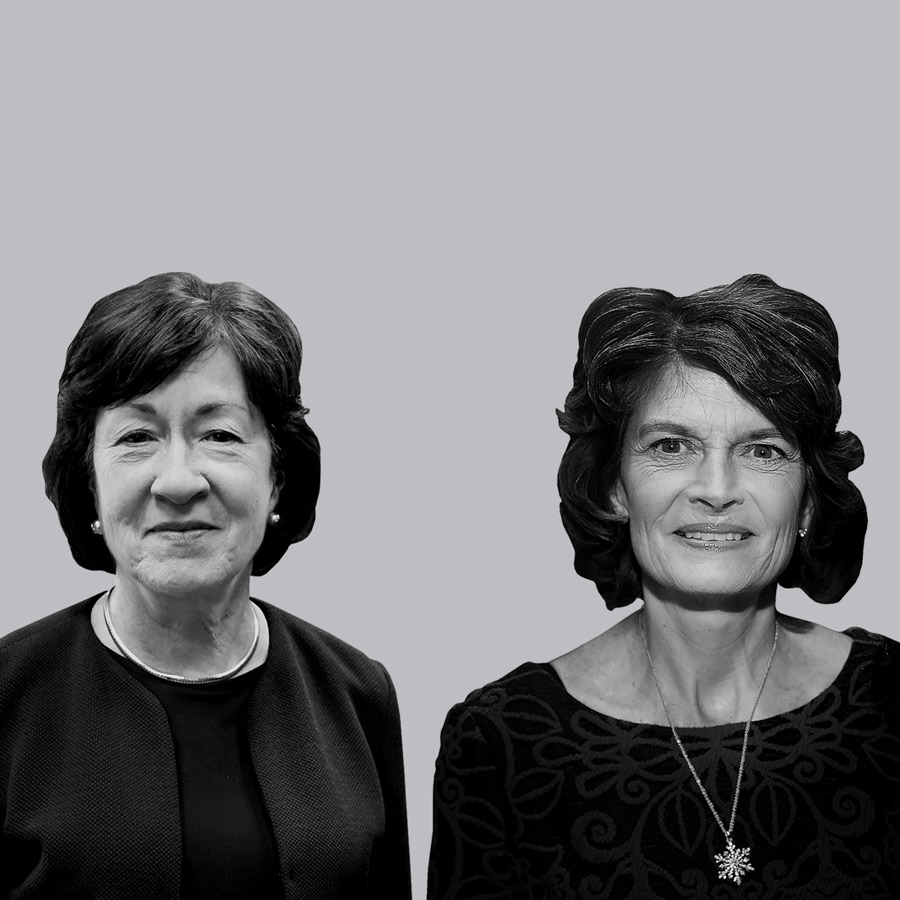
The two Republicans repeatedly stymied their party’s attempts to undo Obamacare, saving 22 million Americans from losing their health insurance in one version of the repeal legislation.
Susan Collins and Lisa Murkowski
Watch Video
Senators, Maine and Alaska
When Senate Majority Leader Mitch McConnell asked select GOP lawmakers to help craft a replacement for the Affordable Care Act this spring, he left out the two who’d ultimately matter most. Murkowski and Collins went on to be the only Republicans to vote against every alternative that party leaders sought to push through the chamber. McConnell’s early plan, crafted after weeks of secret negotiations, kept in place many Obamacare provisions and might have met with Collins’s and Murkowski’s approval had it not included deep cuts to Medicaid and Planned Parenthood. The two moderates’ objections signaled the beginning of the end of repeal. In July, after withstanding enormous pressure from GOP leaders, conservative groups and media, and the Trump administration, they allied with Arizona Senator John McCain in a cliffhanger moment, voting with Democrats to defeat a reworked McConnell plan. Their defections may have led to a rare outbreak of bipartisanship in Washington: Senators from both parties are in talks to shore up Obamacare’s insurance exchanges.
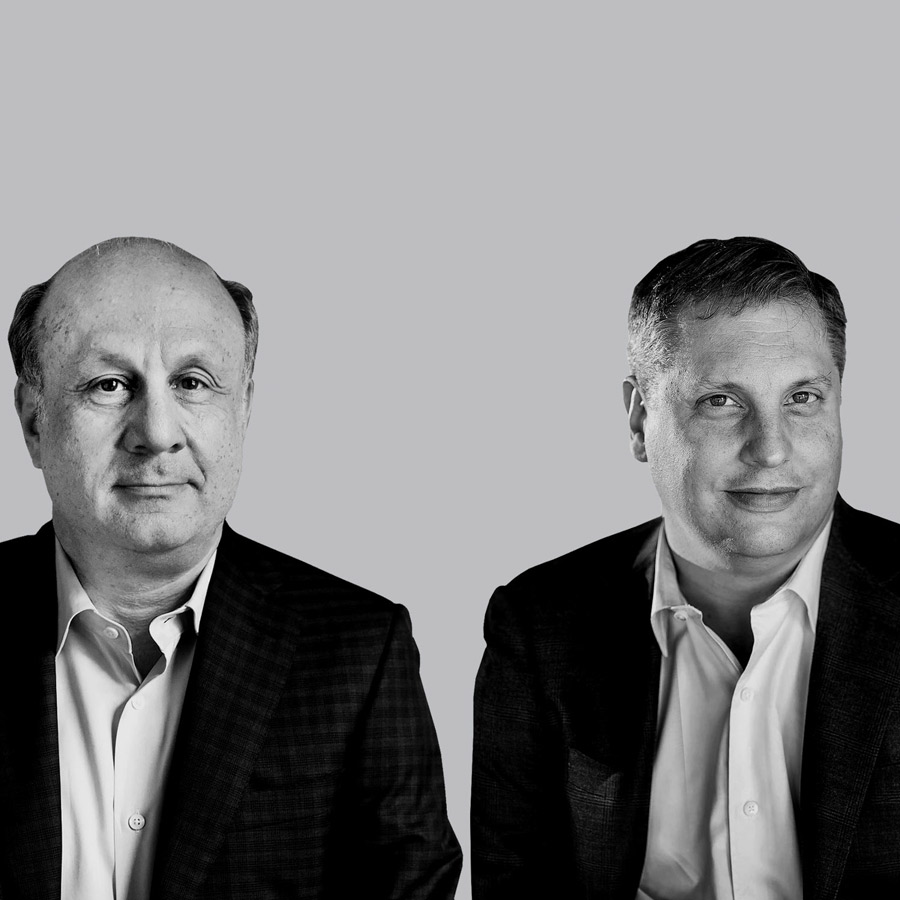
By using computer-driven quantitative analysis, Siegel and Overdeck have amassed a portfolio of $50 billion, up from $35 billion in May 2016, while traditional fund managers such as John Paulson and Paul Tudor Jones have suffered steep losses.
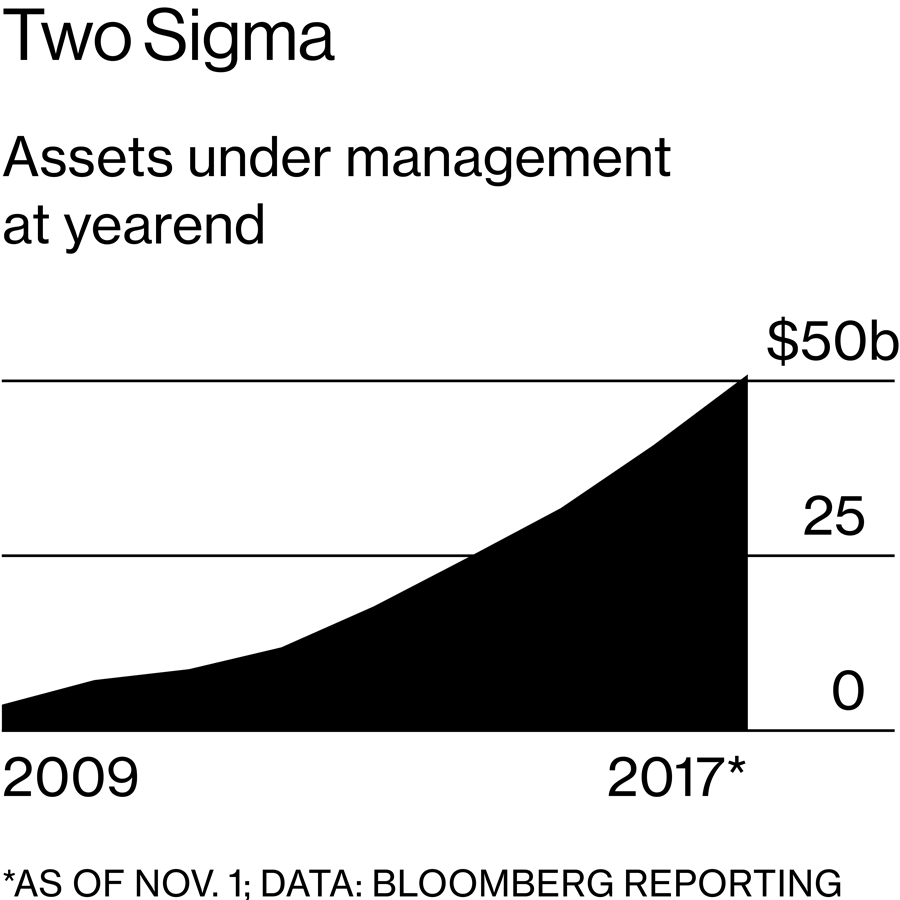
David Siegel and John Overdeck
Watch Video
Co-founders, Two Sigma
The hedge fund industry concluded this year that quant metrics are the future—and that if you want to be part of it, you have to hire talent who’d otherwise go to Facebook Inc. or Google. One of the only shops doing this with any success is Two Sigma, which prides itself on a startup culture that’s foreign to much of Wall Street but familiar to the engineers, coders, and scientists who’ve made it the industry’s fastest-growing company. It now rivals Renaissance Technologies Corp. in its ability to turn data into investment insights, employing machine learning and artificial intelligence algorithms along with an army of data scientists.
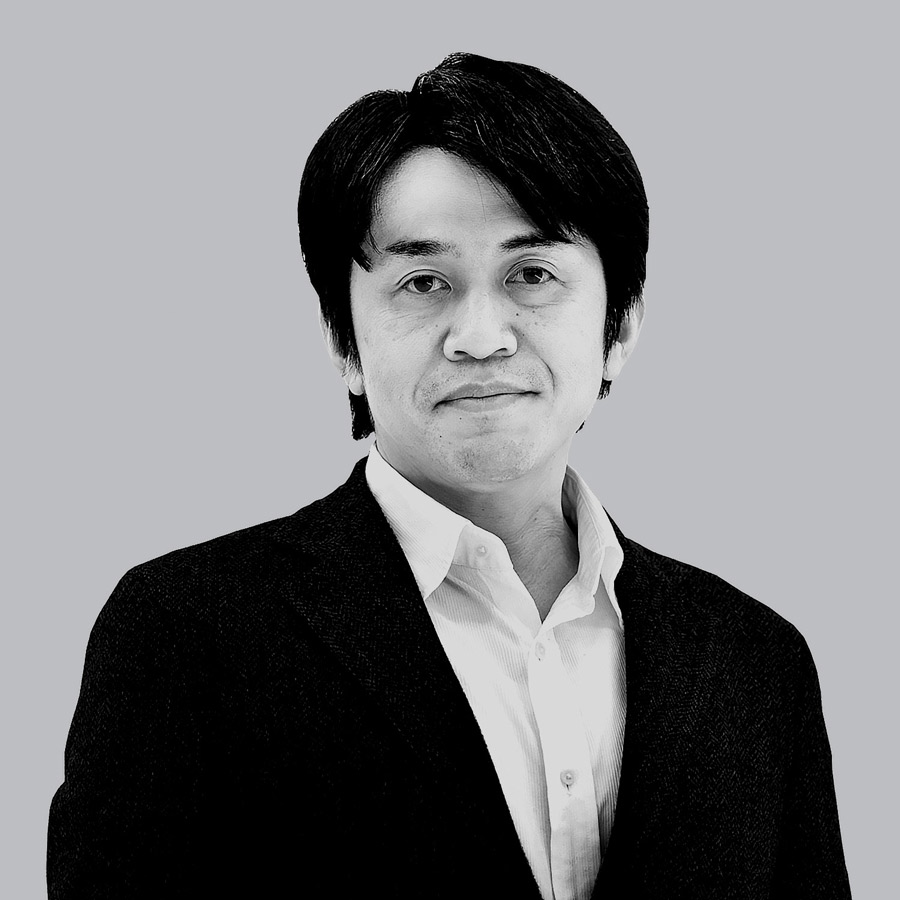
The Switch, which marries home and portable gaming, is revolutionizing the industry, sending Nintendo’s stock soaring 96 percent since the system launched in March.
Yoshiaki Koizumi
Watch Video
General manager, entertainment planning and development department, Nintendo Co.
Nintendo sold 7.6 million Switches in the seven months after they hit the market, helping The Legend of Zelda: Breath of the Wild, one of the console’s first titles, become the fastest-selling game in company history. The system is the biggest shake-up in gaming since the Wii introduced virtual bowling and tennis to grandparents throughout the world in late 2006, and it represents a stunning success for Koizumi, who took over as Nintendo’s creative force in 2014 from legendary designer Shigeru Miyamoto, the man behind landmark games Super Mario Bros. and Donkey Kong.

In the past year, Google’s cloud sales grew more than 80 percent, outpacing industry leader Amazon.com Inc., according to Synergy Research Group.
Diane Greene
Watch Video
CEO, Google Cloud
Google has only about 5 percent of the cloud market, but Greene is solidifying its position as the company’s best business behind ads. She said in April that she thinks Google Cloud Platform could surpass Amazon Web Services by 2022 as it sells more software tools and services and becomes Google’s chief vehicle for bringing advances in artificial intelligence and quantum computing to market.

Chavez, who shifted to his new role from chief information officer in January, is now Goldman’s top investor liaison for an unusually public plan to produce an additional $5 billion in revenue through 2020, and he’s leveraging the company’s massive database of financial data to better communicate with shareholders.
Marty Chavez
Watch Video
Chief financial officer, Goldman Sachs Group Inc.
I have a running banter with the chief accounting officer. I’ll say, “You know, Brian [Lee], one of the things I love about you is that I can call you anytime. I can ask you a question, and you’ll give me the answer: What are our capital ratios looking like? And while that’s fantastic, what I would like even more is a dashboard that lets me answer these questions myself, so you and I can talk about next-level things.” These dashboards now exist, and they let us answer questions from shareholders. When we declared the growth plan, we made ourselves accountable for providing communication on how we’re doing. I want to know exactly where we are, so I can have a constantly updated picture of how close we’re getting to our goal.
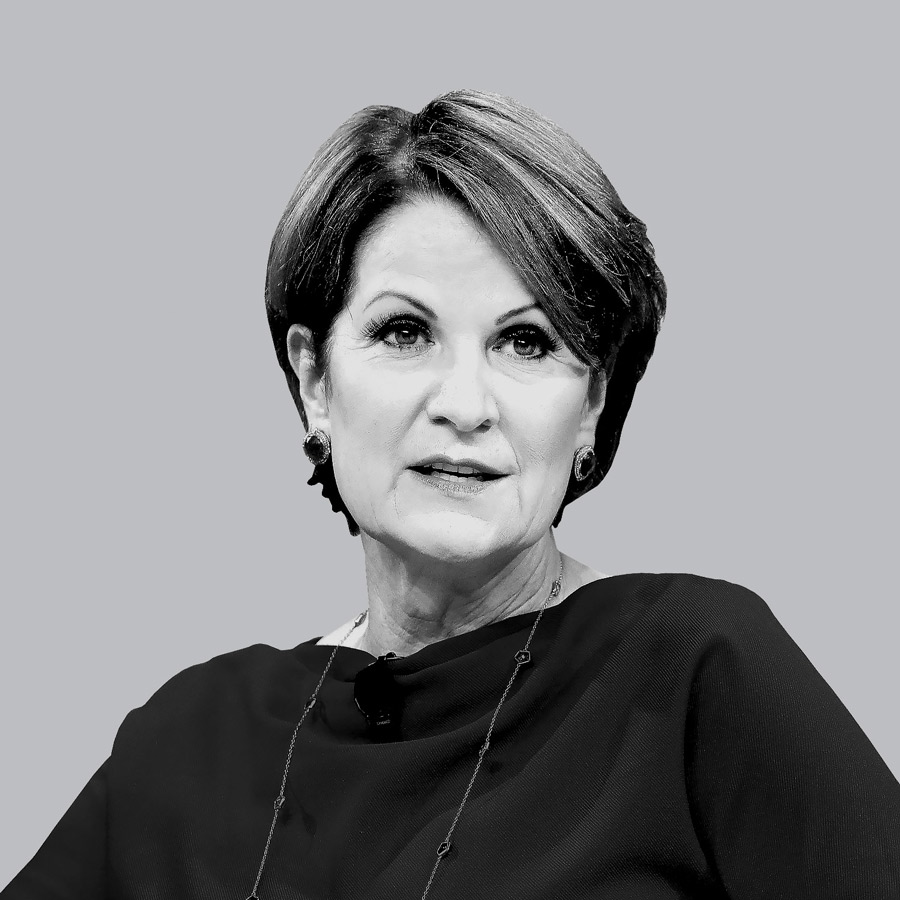
In May, Saudi Arabia signed a $15 billion contract for a missile defense system that Lockheed developed on Hewson’s watch—the same one South Korea deployed when Kim Jong Un started lobbing missiles over Japan.
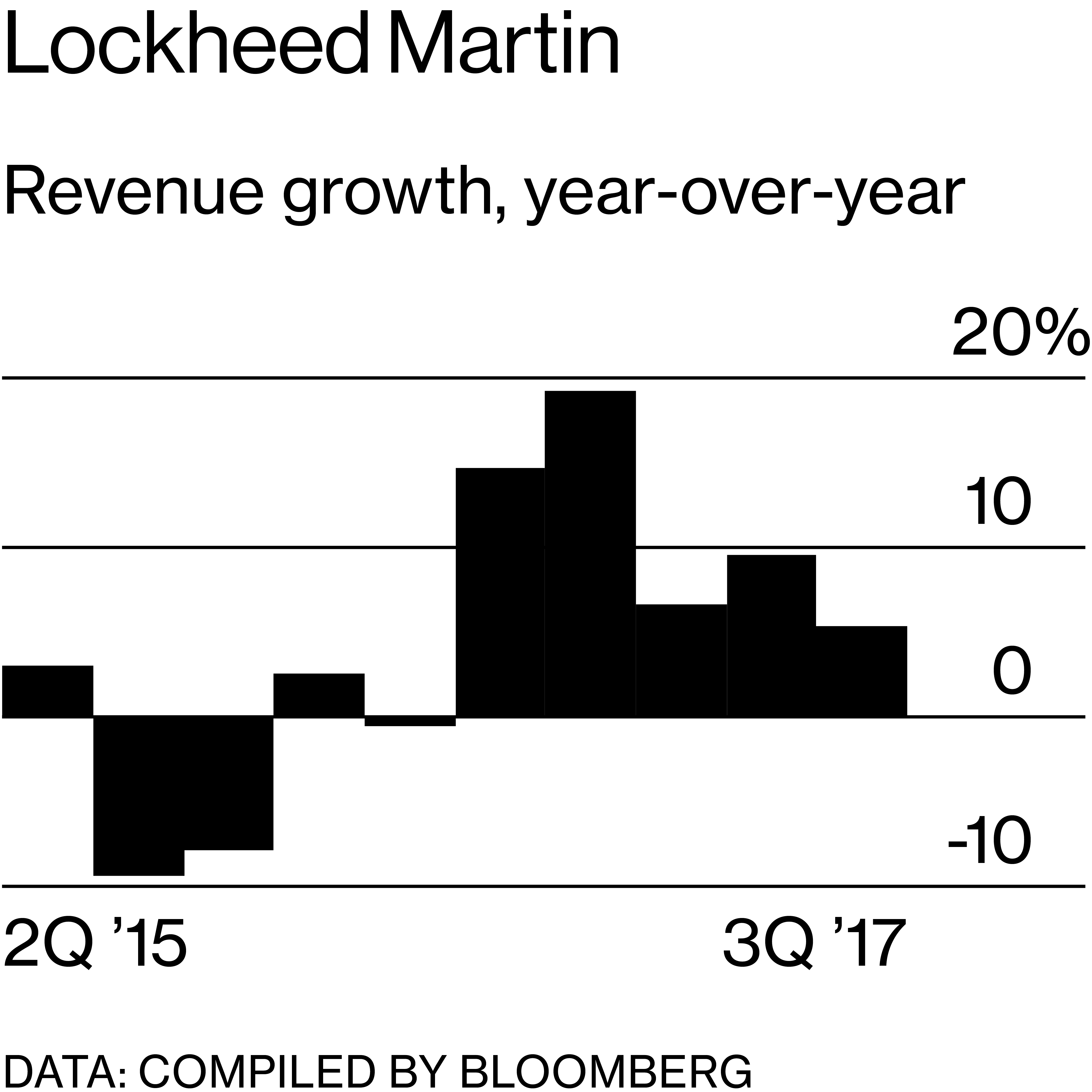
Marillyn Hewson
Watch Video
CEO, Lockheed Martin Corp.
The sale of Lockheed’s Thaad (terminal high-altitude area defense) system was the centerpiece of President Trump’s visit to Riyadh, and Hewson was on hand for the deal. It might not be the only one she inks during his presidency—Japan and several European countries are potential customers. Thaad’s selling point is that it’s designed to prevent nuclear warheads from detonating: It tracks enemy missiles and fires interceptors that use kinetic energy, not conventional warheads, to destroy them. Hewson is also overseeing the development of a Patriot missile replacement and proceeding with Lockheed’s controversial F-35 Lightning II fighter jet. Trump tweeted that the plane had “out of control” cost overruns before claiming victory on contract talks (conducted mostly under President Obama) and declaring the stealth fighter “fantastic” in his State of the Union address.
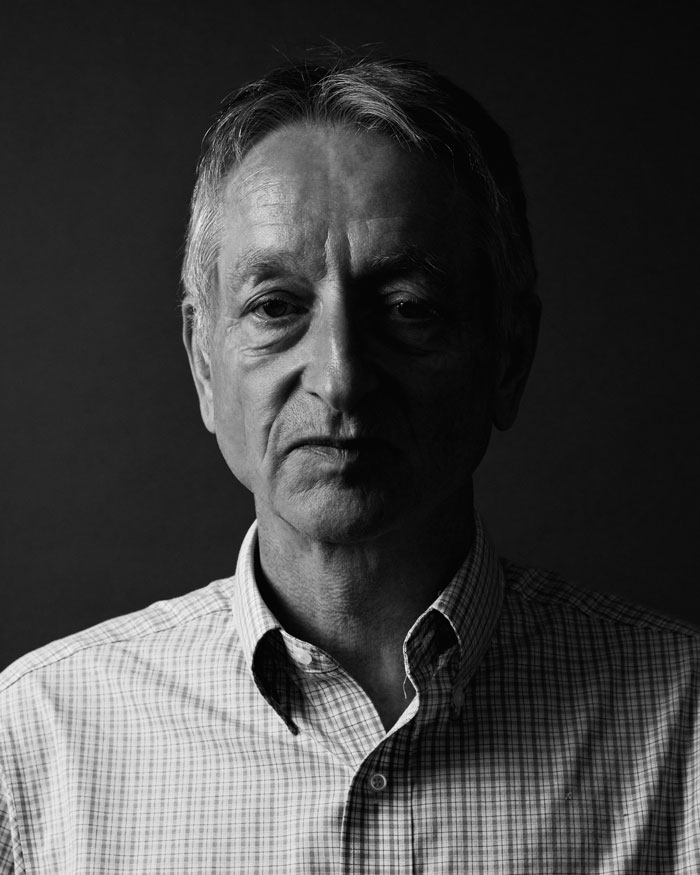
Geoffrey Hinton
Watch Video
Chief scientific adviser, Vector Institute
Toronto’s $180 million artificial intelligence research center will shore up Canada’s claim to being an AI superpower and nurture Hinton’s reputation as the field’s top expert.
Hinton last sat down in June 2005. Because of a back condition, he’s been in the binary position of standing up or lying down for more than a decade. He works standing up, eats standing up, and avoids planes and cars. But he can walk and does so with near-algorithmic purpose. This is a good thing, given that Hinton, 70, maintains three workspaces in close proximity: one at the University of Toronto, where he’s taught for 30 years; another at Google’s Toronto office, where he’s been a leader since 2013 on the Google Brain team; and now one at the Vector Institute.
Hinton’s role at the center would have seemed unthinkable when he was getting his doctorate in AI in 1978. The technology was out of favor then. Early AI researchers had devised a concept known as a “neural net,” which allows a computer to be trained to perform a task, such as deciding if a photo depicts a man or woman, when it’s fed thousands of photos and taught to classify them. Although promising, neural nets failed to produce breakthroughs, and young researchers were dissuaded from pursuing the idea. “Everybody who did AI was convinced they were complete nonsense. It was obvious to me that everyone was wrong,” says Hinton.
As research centers around the world pulled their neural net funding, Canada gambled on Hinton and like-minded peers. It paid off: Neural nets, fed by huge volumes of data on the internet, started showing progress in areas such as speech and image recognition. Starting in 2006, Hinton and his students made one discovery after the next, and soon tech giants couldn’t hire neural net experts fast enough. Anyone who’s asked Amazon Echo to play a song, watched Facebook identify friends’ faces in photos, or fired up Autopilot in a Tesla has relied on Hinton’s research.
Silicon Valley has lured away many of Canada’s AI experts, so the Vector Institute is designed to give them a reason to stay—and in the age of Trump, to encourage international researchers to leave the U.S. “We are home to some of the top talent when it comes to artificial intelligence,” Prime Minister Justin Trudeau said shortly after the center opened. “We can’t afford to lose that competitive advantage.” Vector will mix academic research with more commercial pursuits. The corporate bodies backing it, including Google, Uber Technologies Inc., and chipmaker Nvidia Corp., will work with Hinton’s people to identify profitable areas to explore and then strike intellectual-property deals.
The hope is that Hinton is the magnet. He’s morphed from an obscure academic into someone whose speeches fill auditoriums—and whose influence helped get companies such as Google and Facebook Inc. to open offices this year in Edmonton and Montreal, respectively. He’s also not done making contributions to the field. Hinton released two papers in October detailing “capsule networks.” He says they’re besting previous high-water marks on machine vision tests and are better than older AI systems at recognizing handwriting and everyday objects such as toy cars.
There are critics who think Canada’s investment in neural nets may be coming at a time when the technology is overhyped and reaching its limits, but Hinton remains self-assured. “They think it’s a bubble,” he says. “I think it’s not.”
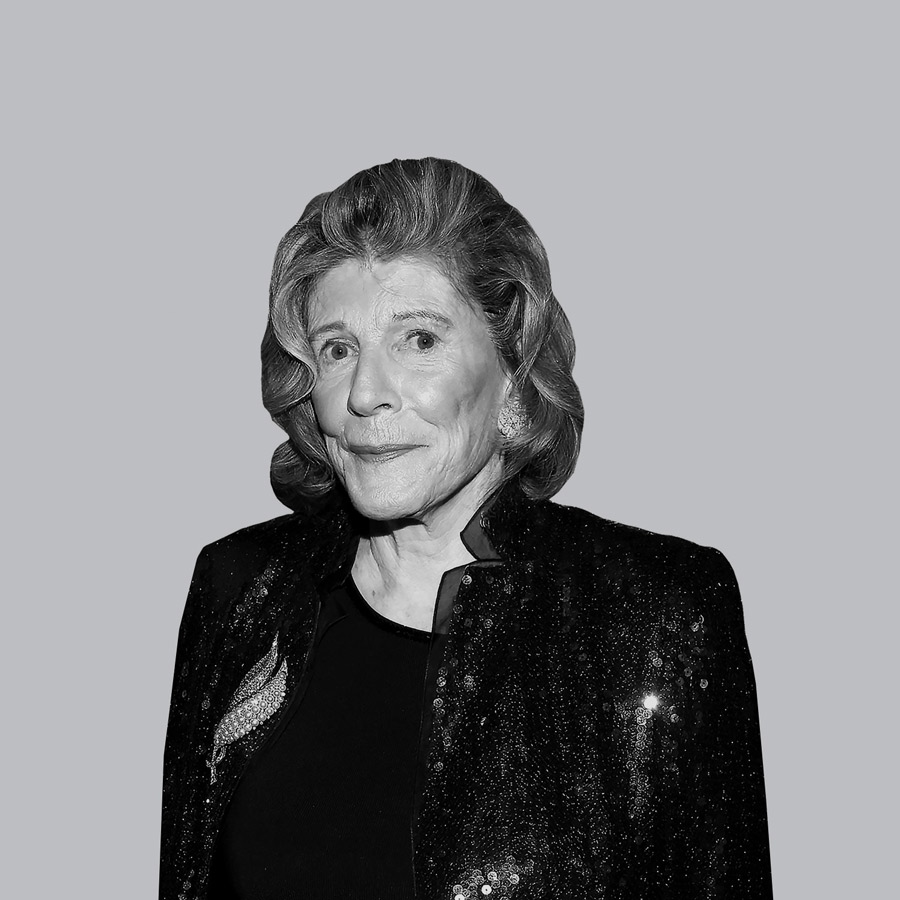
Gund seeded a fund with $100 million to reduce prison populations and plans to double the endowment in the next five years.
Agnes Gund
Watch Video
Philanthropist
The 79-year-old heiress to a banking, real estate, and brewery fortune has been collecting art and supporting arts institutions since the 1960s. Earlier this year, she made global headlines with the announcement that she’d received $145 million from the sale of a Roy Lichtenstein painting that had hung in her dining room and was using the proceeds to endow a fund aimed at reforming a criminal justice system that disproportionately incarcerates people of color. Gund subsequently enlisted fellow New York philanthropists, such as Laurie Tisch and American Express Co. CEO Kenneth Chenault, to contribute in an effort to double its size. Part of this is personal—Gund has black grandchildren—but part of it is also old-school social liberalism, in which noblesse oblige is about results, not naming rights.
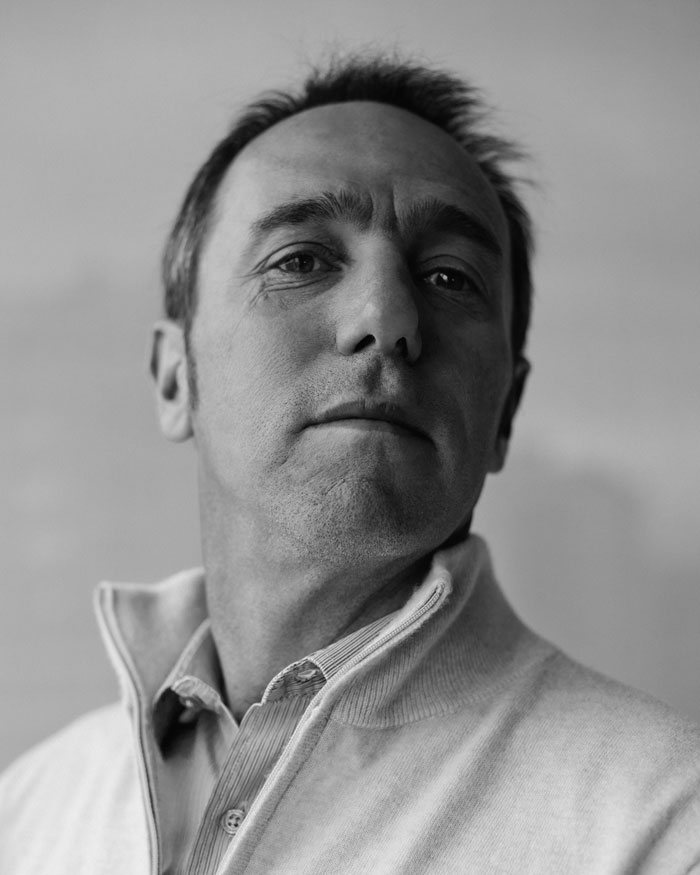
Marcos Galperin
Watch Video
Co-founder and CEO, MercadoLibre Inc.
Latin America’s dominant e-commerce platform saw revenue increase 61 percent this year, the fastest pace in a decade, as Galperin expanded into financial services.
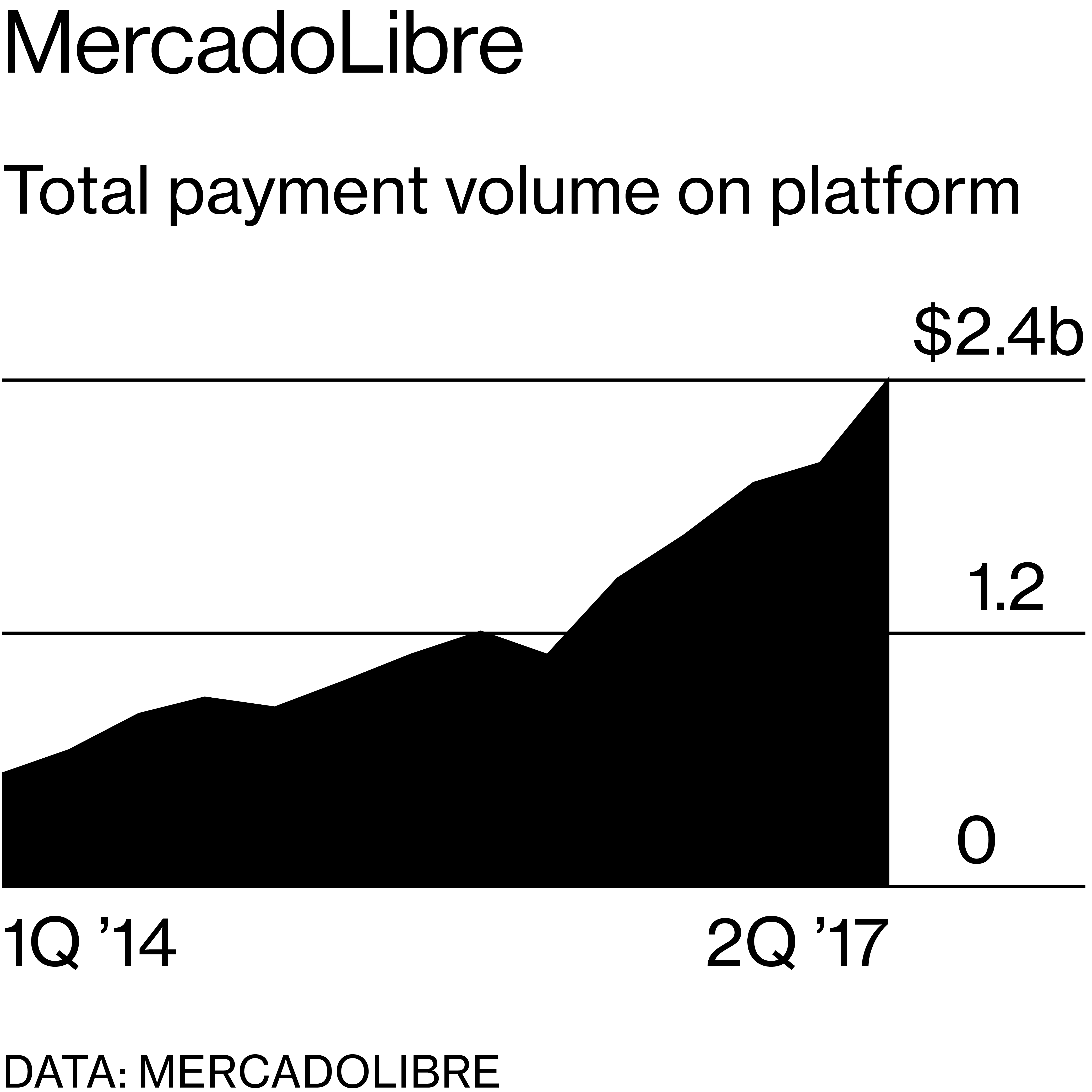
MercadoLibre, a hybrid of Amazon.com, Alibaba, and EBay, is now challenging the region’s banks, making loans and issuing debit and credit cards to many of the company’s 45 million buyers and sellers. “Almost half of the population in the region is unbanked,” Galperin says. “We already have transactional information from the people who buy and sell on our network, so we feel very comfortable lending them money. And unlike banks, for us it’s easy and cheap to reach them, because they all have our app.” The next step is asset management—investing cash balances in users’ electronic wallets for a fee—though Galperin has more radical ideas. He envisions a time when making purchases or transferring funds on MercadoLibre isn’t only free but also gives consumers cash back, because the information generated in the transactions is so valuable.

In June, Vestager levied a €2.3 billion ($2.7 billion) penalty against Google, the highest antitrust fine the EU has imposed on a company, solidifying her role as enemy No. 1 of U.S. internet titans.
Margrethe Vestager
Watch Video
European Union competition commissioner
The fine imposed by Vestager, which Google is appealing, displayed her customary wariness of how tech giants warp markets. So did the €250 million October judgment against Amazon.com Inc. for back taxes and her November reinvestigation of Apple Inc.’s tax setup after last year’s order that the iPhone maker pay €13 billion in back taxes. Hers is the loudest voice demanding that Europe be tougher about extracting money from these companies and passing laws that regulate how they handle consumer data. Big Tech, be warned. Vestager has two years left in her five-year term, and she’s said she wants to stay on in Brussels.
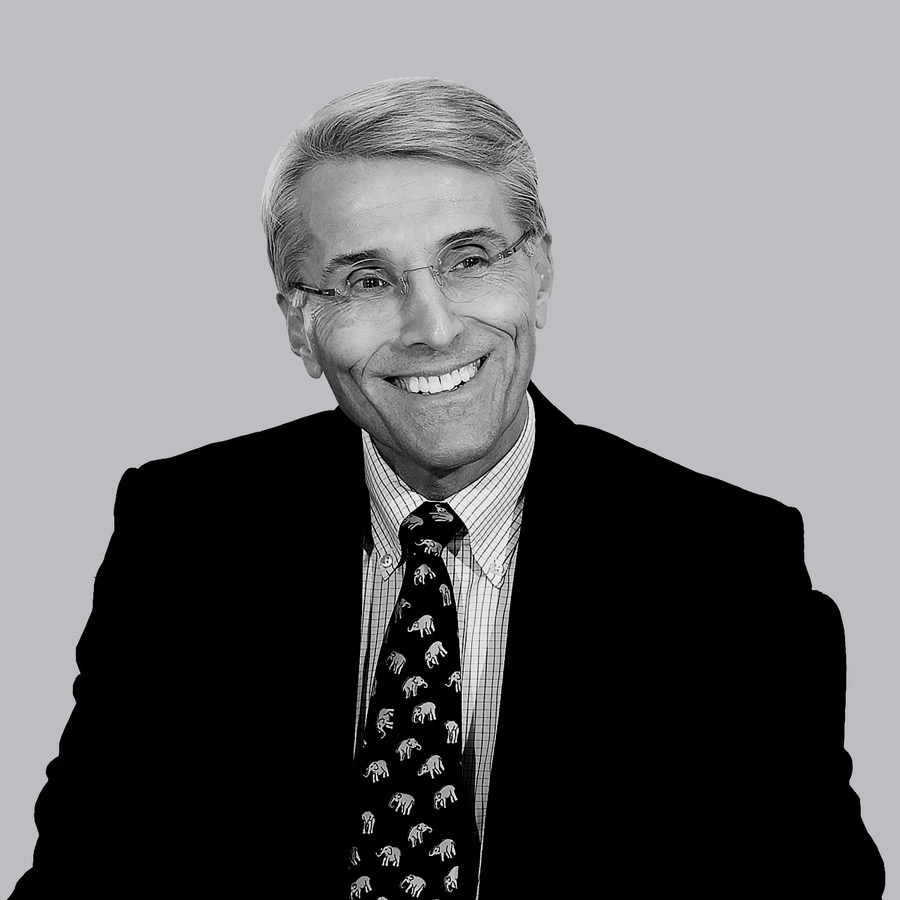
Pazdur’s department at the FDA is increasing the rate at which cancer drugs are approved, with medications that fight the illness making up 31 percent of novel-drug approvals through mid-November, up from 27 percent last year.
Richard Pazdur
Watch Video
Director, U.S. Food and Drug Administration Oncology Center of Excellence
Bloomberg News biotech reporter Caroline Chen talked to Pazdur about his evolving perspective on getting drugs to market. Edited excerpts:
Caroline Chen: What was new about cancer drug Keytruda’s label expansion that was granted this year?
Richard Pazdur: Our conventional approach is to approve a drug for a specific disease type, usually organ-specific. With this approval, we OK’d the drug for all solid tumors that express at least one of two specific biomarkers—a “site agnostic” indication.
You also approved cancer drugs Idhifa and Aliqopa based on nonrandomized trials with no placebo. Do you worry about OK’ing drugs before they’ve proven their long-term benefit?
There are sins of commission and sins of omission, and I’m more worried about sins of omission, which is not approving a drug that is truly active. The drugs wouldn’t be approved if they weren’t safe. But especially when patients have no other therapy, we’re willing to be proactive.
How have your different roles—oncologist, trial investigator, regulator, caregiver—changed you?
My wife’s demise in 2015 from ovarian cancer put an urgency in me to get out effective therapies. I would leave Mary at 8 a.m. and come back at 6 p.m., and she would not have moved because she was so fatigued by her treatment. We’re now working to bring a patient assessment of toxicity into product labeling.
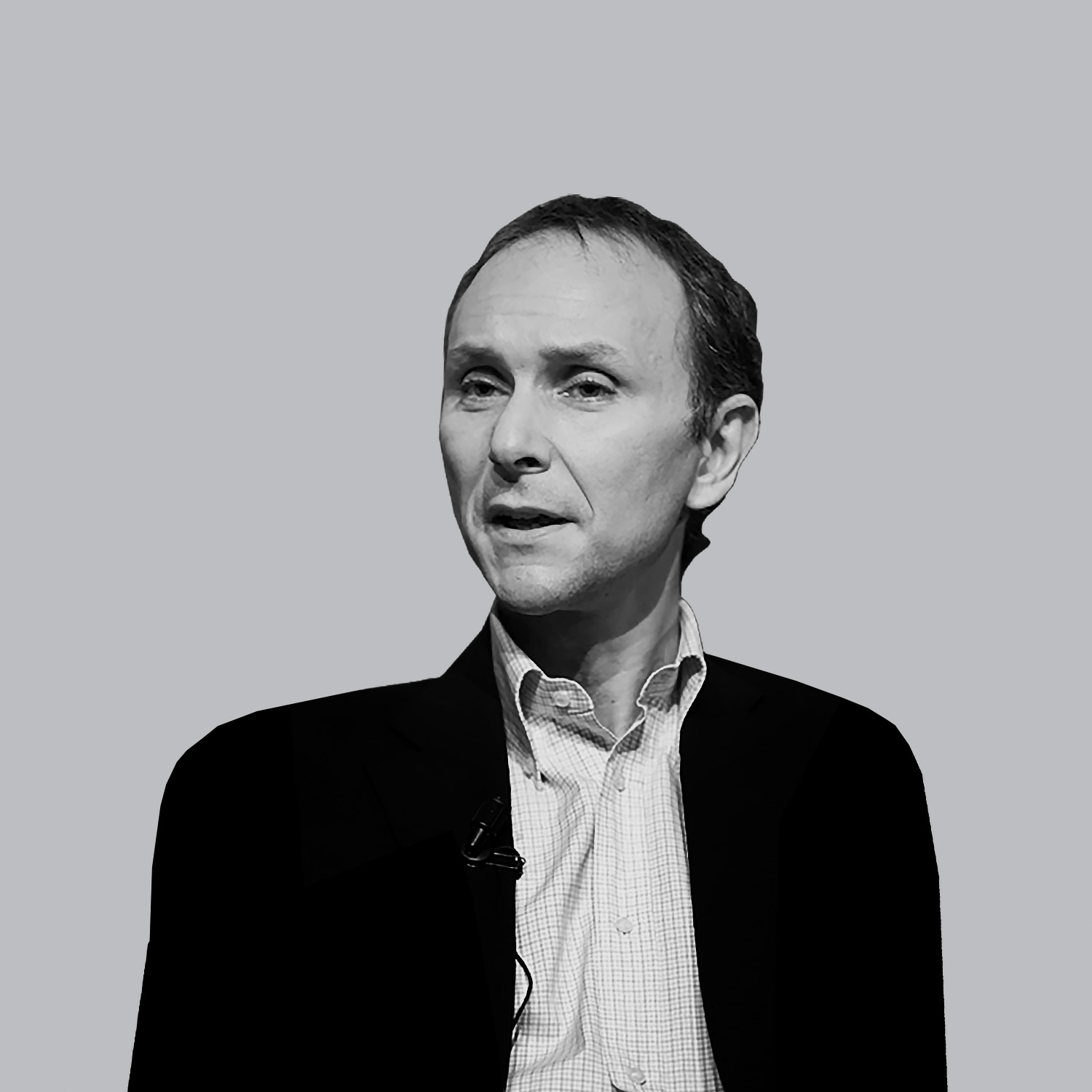
De Rubertis’s reputation for halving the time it takes for a return on biotech investments has Silicon Valley eager to get in on a $300 million fund he’s raised for late-stage startups.
Francesco De Rubertis
Watch Video
Co-founder, Medicxi
Medicxi Growth 1, which made its first investments in health care and diabetes treatments, is taking minority stakes in companies that are developing multiple therapies, have full management teams, and intend to go public as independent businesses. This is a departure for De Rubertis. He has focused on “skinny” startups—with small management teams and only one therapy—that can integrate into larger companies after being bought. The shift hasn’t diminished interest in the fund. Verily, Alphabet Inc.’s life-sciences arm, has a roughly $75 million stake.

Autor’s research illuminated the devastation of U.S. manufacturing by cheap goods from China since 1990, which led to reduced overall fertility while raising the share of births by teens and unmarried mothers, in some areas by a half-percent.
David Autor
Watch Video
Economist, MIT
The prolific researcher released a pair of influential working papers this year. One looks at how manufacturing trade deficits harm the institution of marriage in the U.S. by diminishing the job prospects of young men, making them “less valuable as marital partners.” Autor also documents how the rise of superstar companies such as Google and Facebook Inc. has hurt American workers: They pay well but keep staffs small, putting pressure on competitors to shrink and giving themselves more market share.

Africa’s richest man announced plans to invest $4.6 billion over the next three years in boosting food production in his native Nigeria.
Aliko Dangote
Watch Video
CEO, Dangote Group
Dubbed “the quiet billionaire” for his relatively frugal lifestyle, Dangote fast-tracked plans to help his country of 180 million people import less of what it eats. Dangote, who made his fortune in the cement industry, is turning his attention to dairy and sugar farming; he’s earmarked $800 million to buy 50,000 cattle in the hope of producing 500 million liters of milk annually by 2019. He’s also racing to finish a 650,000-barrel-a-day oil refinery near Lagos, set to be one of the world’s biggest, and says he intends to spend as much as $50 billion in the next decade on renewable energy and petrochemical refineries, including investments in the U.S. and Europe. Which is all fine, but not quite his grand ambition: buying Arsenal, his favorite soccer team.

After the former engineer at Uber chronicled its gender discrimination and workplace chaos, the company commissioned an independent investigation that recommended 47 steps to reform its cultural values.
Susan Fowler
Watch Video
Editor-in-chief, Increment
Fowler’s 2,900-word blog post in February captivated Silicon Valley with its detailed descriptions of sexual harassment, petty acts of discrimination, and infighting at Uber Technologies Inc. After her boss had propositioned her for sex, she wrote, she gathered evidence and complained, only to have human resources decline to punish a top performer for an “innocent mistake.” Her account of the heavily male tech industry resonated and helped lead the company to oust Chief Executive Officer Travis Kalanick and make sweeping promises to improve the climate for employees. Fowler, who now runs a magazine at payments-processing startup Stripe Inc., has continued to advocate for workplace reforms, including filing a supporting brief in a legal challenge to contracts that prevent workers from banding together to sue. Hidden Figures screenwriter Allison Schroeder is working on a movie about her, too.

In the wake of an October New York Times story detailing accusations of a decades-long pattern of sexual harassment by film producer Harvey Weinstein, more than 40 powerful men in entertainment, media, and politics have been similarly accused, exposing a pattern of abuse that’s upended those worlds.
Ashley Judd, Rose McGowan, and Lauren O’Connor
Watch Video
Whistleblowers
It wasn’t a secret that Weinstein had a habit of crossing the line with women, but Hollywood hardly punished him for it: The Miramax LLC co-founder sold his production house to Walt Disney Co. for $60 million in 1993; his Shakespeare in Love won the Academy Award for best picture in 1999, five years after he allegedly asked its star, Gwyneth Paltrow, for a naked massage; and the Producers Guild of America gave him and his co-founder and brother, Bob, a lifetime achievement award in 2013. It took the coming forward of Judd, McGowan, and O’Connor—a Weinstein Co. employee whose memo to executives documenting alleged abuses was provided to the Times—to expose the culture of looking the other way that made Weinstein’s behavior possible. Weinstein was fired, and as more women have gone public to the press and through the #MeToo social media campaign, other men have been, too, including Amazon Studios head Roy Price. Still more have seen projects canceled, such as NBC News commentator (and former Bloomberg TV host) Mark Halperin and comedian Louis C.K. Weinstein, who’s being investigated for sexual assault in New York and London, has denied the accusations of nonconsensual sex.
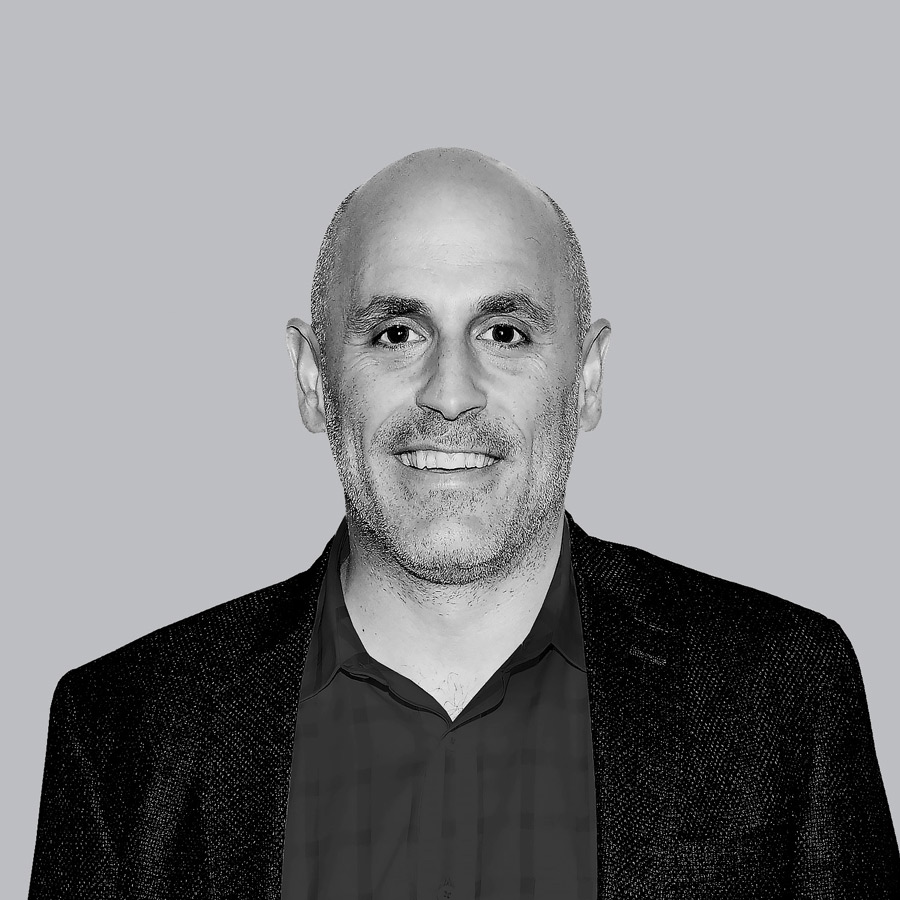
Lore engineered U.S. sales growth of at least 50 percent in each of the first three quarters, reversing poor online performance and giving Walmart relevance in a space ruled by Amazon.com Inc.
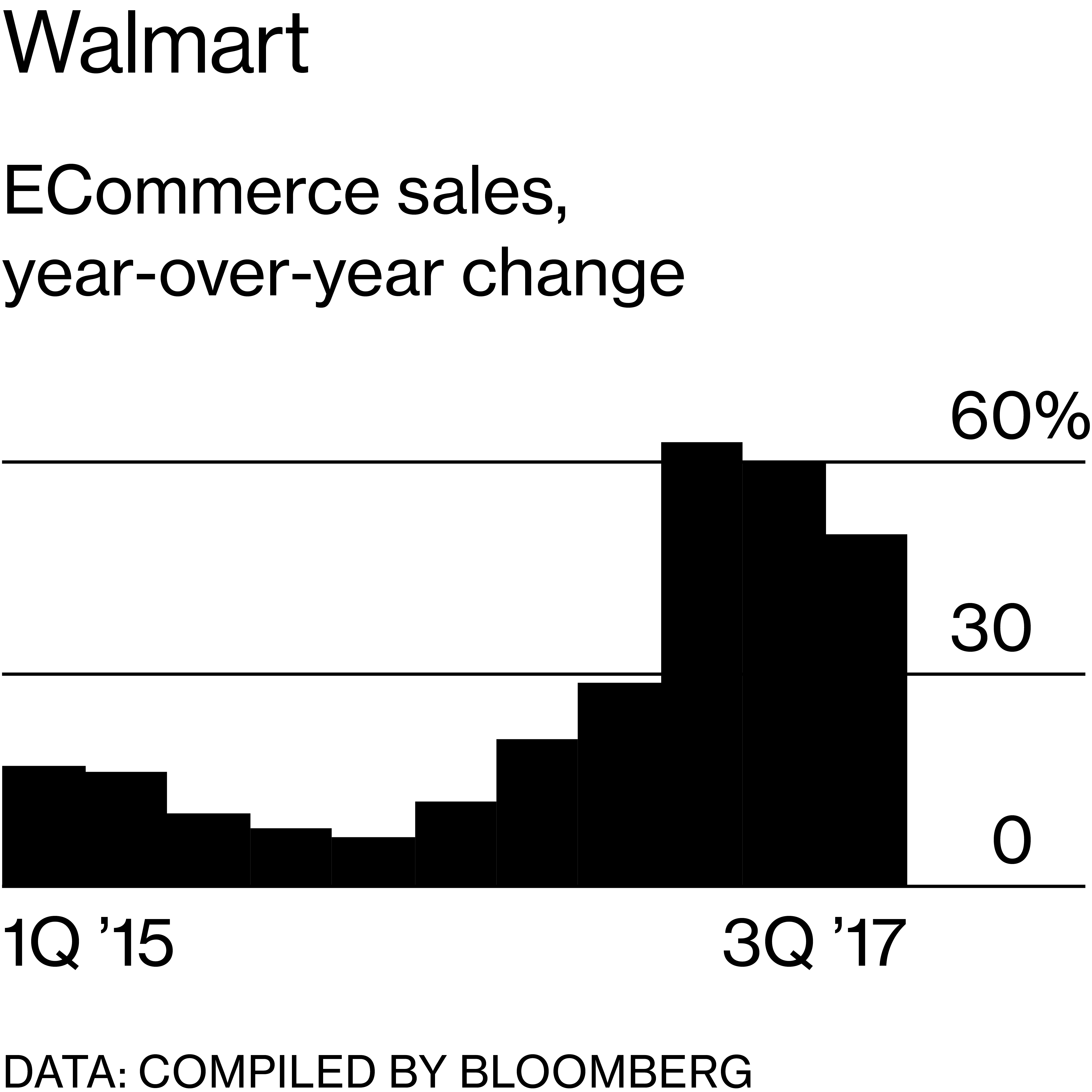
Marc Lore
Watch Video
President and CEO, Walmart ECommerce U.S.
Injecting some much needed web savvy into the corporate culture, Lore added free two-day shipping, worked with Google on voice-activated shopping, and acquired startups, including Moosejaw.com (outdoor gear) and ModCloth (women’s wear), to lure younger customers. Lore, who joined Wal-Mart Stores Inc. in 2016 after it paid $3.3 billion for his startup, Jet.com, hasn’t been afraid to experiment, even asking employees to make deliveries on their way home.
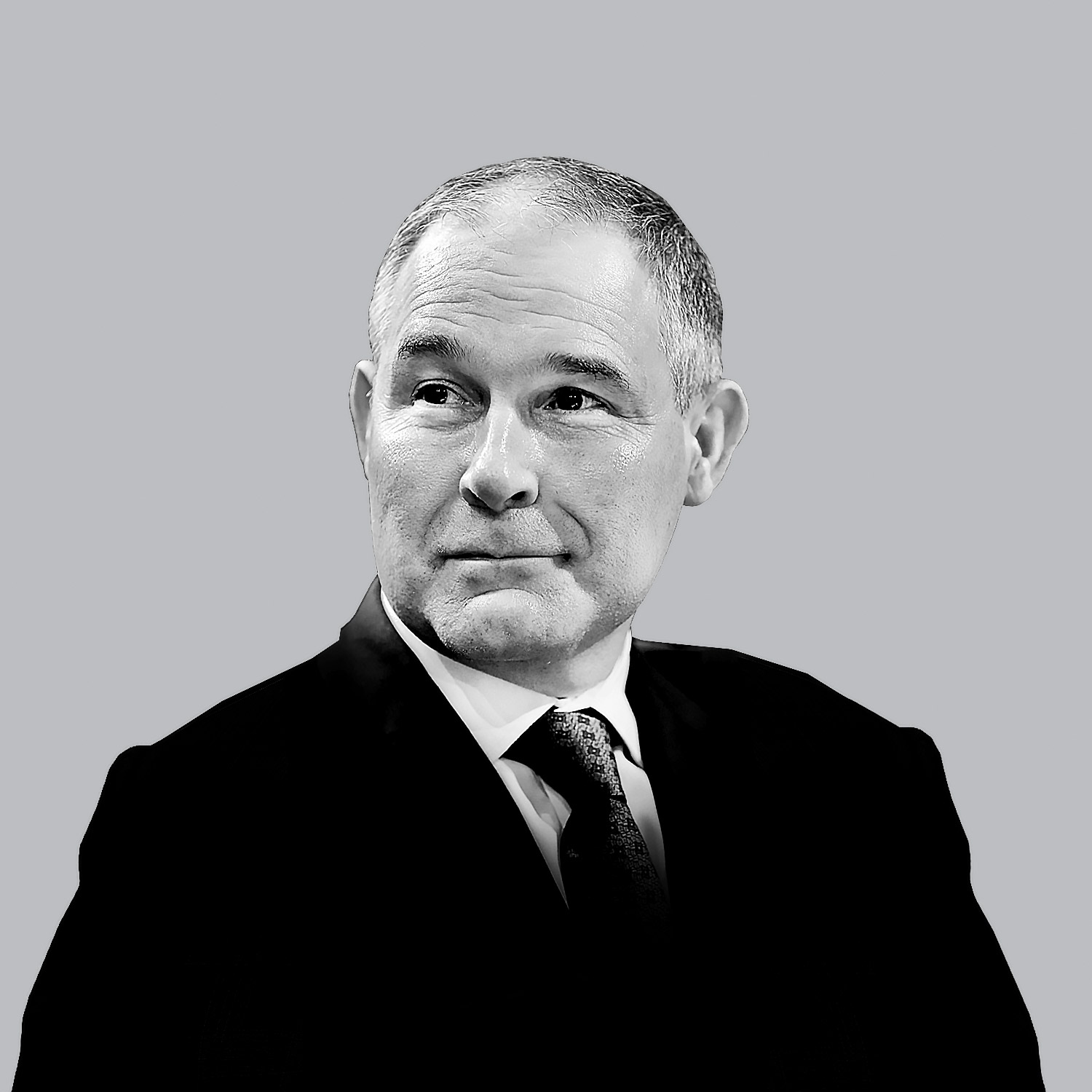
After years of battling the EPA from the outside, Pruitt is now fighting it from within, slashing the agency’s 15,000-member workforce by a third and proposing a repeal of curbs on carbon dioxide emissions to spare companies what it says are $33 billion in compliance costs.
Scott Pruitt
Watch Video
Administrator, Environmental Protection Agency
Pruitt, a former Oklahoma attorney general who built his career challenging what he termed the “EPA’s activist agenda,” says he’s “righting the wrongs of the Obama administration.” He’s giving states a bigger role in environmental oversight, reopening a review of fuel-efficiency standards, and delaying a rule to boost the safety of chemical facilities—work guided by almost-daily consultations with industry representatives. In addition, he’s replaced experts on EPA scientific advisory boards with people who have deep industry ties, and in what could be a stunning turnabout, he’s weighing whether to reverse a landmark conclusion that carbon dioxide endangers public health and welfare.
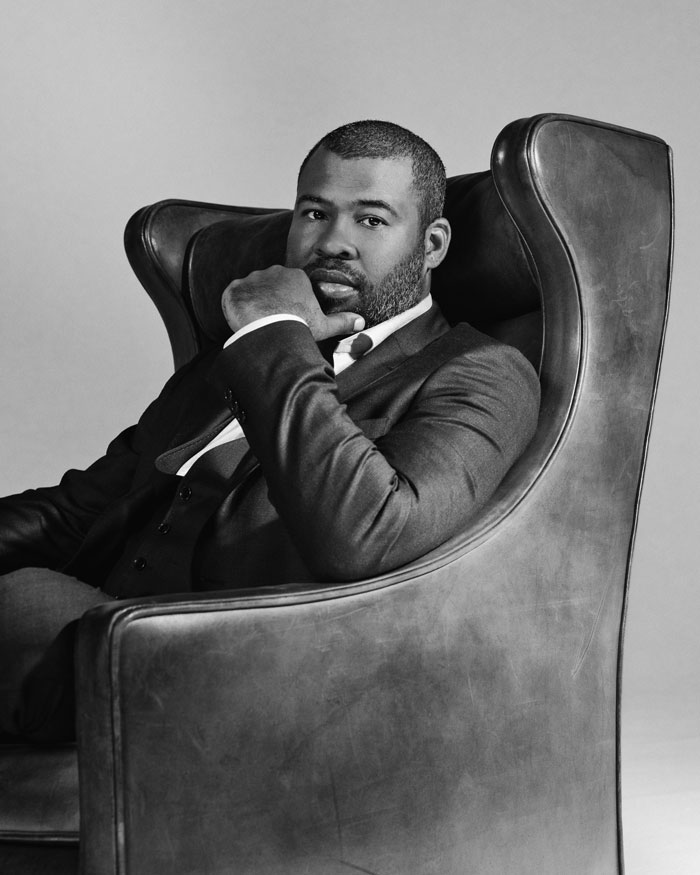
Jordan Peele
Watch Video
Founder, Monkeypaw Productions
Horror-comedy Get Out, Peele’s directorial debut, took in $252 million worldwide on a $4.5 million budget and established the 38-year-old actor, writer, and producer as Hollywood’s most trenchant satirist.
Looking around Peele’s office, one may experience déjà vu. Doesn’t his desk chair, with its jungle-pattern brocade fabric and wooden arms carved in the shape of lions’ heads, seem familiar? Sinister and familiar? That’s because it’s set dressing from Get Out, about a young black man (Daniel Kaluuya) who goes to meet the parents of his white girlfriend (Allison Williams) and discovers a nefarious plot against black people. It’s the very chair where Catherine Keener, as the girlfriend’s mother, sits across from Kaluuya, clinking her spoon against a porcelain teacup until hypnosis sets in. Peele also has the leather-tufted chair in which Kaluuya slips into his trance. That’s where visitors sit, and it’s a bit unnerving. “I can’t believe I got to keep these,” Peele says excitedly.
Get Out was his feature film directorial debut after five seasons of Key & Peele, the Emmy-winning sketch comedy he created with Keegan-Michael Key. The film beat out The Blair Witch Project as the highest-grossing debut for a writer-director with an original screenplay and Straight Outta Compton as the top domestic hit from a black director. Most impressively, it’s the third-highest-grossing R-rated horror film ever, behind The Exorcist and Stephen King’s It. Peele, though, was working with a seventh of It’s budget. Now he has first-look deals with Universal Pictures and Sonar Entertainment, where he’ll produce TV shows.
We’re standing in a three-story town house in the hills, right below the Hollywood sign, that Peele has rented as the headquarters for Monkeypaw Productions. It’s the vehicle he’ll use to make his “tippy-top secret” new movie, nurture talent, and make more films and TV shows with social messages. The plan is to model Monkeypaw after J.J. Abrams’s Bad Robot Productions and Steven Spielberg’s Amblin Entertainment, production companies that allow their creator’s voices to carry through on all projects. The name comes from the be-careful-what-you-wish-for fable about parents who prayed on a shriveled monkey’s paw to get rich and wound up with money only after their son was killed. Peele wants “monkeypaw” to become an adjective describing the genre he’s creating where comedy and horror meld into dark satire—think Scream if it tackled systemic oppression. Since Get Out, he’s hired six staffers, soon to be nine.
Every inch of Monkeypaw Central, as Peele calls it, is covered with his influences: a Pinhead doll from Hellraiser; a framed replica of the treasure map from The Goonies; posters from The Exorcist, The Shining, and Rosemary’s Baby. “I’m not shy about being derivative,” he says, explaining how his cinematic hero, Quentin Tarantino, “helped us learn that you can pay homage in blatant ways and still be unique.”
Still, it’s not an exaggeration to say that with one film, Peele has changed the face of horror. In a genre that has a running joke about how the black guy always dies (see Night of the Living Dead, Dawn of the Dead, Day of the Dead, The Return of the Living Dead, From Dusk Till Dawn, A Nightmare on Elm Street 3: Dream Warriors, Freddy vs. Jason, Resident Evil, See No Evil, I Still Know What You Did Last Summer, Halloween: Resurrection, and Scream 2, in which Omar Epps and Jada Pinkett Smith die before the opening credits in a sendup of the trope), he’s made a film from the perspective of a black protagonist. In doing so, Peele brings to life in hilarious and terrifying fashion the paranoia that comes from being the only black guy in a room full of white people.
What’s more, he isn’t skewering obvious racists. Get Out is a searing commentary on white liberalism and the myth of a postrace society. The movie’s psychopath dad (Bradley Whitford) insists he would have voted for Barack Obama a third time. “Very early on, I realized if I could pull off The Stepford Wives, except instead of men conspiring against women, it’s Caucasians conspiring against black people,” Peele says, “then it would be at the very least a very, very ballsy film.”
Most horror movies don’t take seven years to write. But Peele kept fine-tuning his idea, drawing on his experience as a comedian to appeal to the widest viewership. “We are trained to be in tune to the audience,” he says. “I’m trying to get the whole audience to jump at the same time, laugh at the same time, cheer at the same time.” He realized that two of the most loyal groups of theatergoers, African Americans and gore enthusiasts, had rarely been courted together. And he wrote Get Out to be a film that people had to see immediately—and then again and again—by studying sleeper hits such as The Sixth Sense and The Usual Suspects. “A great twist makes the word-of-mouth so immaculate,” he says, “because there’s nothing more compelling than someone saying, ‘Oh, my God, have you seen this movie? I can’t tell you anything more. You have to see it.’ ”
When Get Out premiered at the Sundance Film Festival in January, none other than Malia Obama was in the audience. (Peele impersonated her dad on TV for years, but, he says, he doesn’t know if the president had seen the movie: “I’ve got to think he digs it. He’s been there. He knows that world.”) A half-year after its release, it’s still the most acclaimed movie of the year on Rotten Tomatoes, with a 99 percent “fresh” rating.
There’s a good chance it will be the rare horror film to get an Oscar nomination for best picture, and it will probably be a finalist for best original screenplay. “My favorite expression from people who see Get Out is, ‘I hate horror movies, but I love Get Out,’ ” says Jason Blum, whose Blumhouse Productions co-financed the film. “It was a horror movie. So you don’t hate horror movies. You hate most horror movies.”
Right after Get Out’s success was clear, Peele got offered the chance to direct a remake of one of his favorite movies, the 1988 Japanese animated sci-fi classic Akira. He turned it down. “The response to Get Out was so wonderful,” he says, “that I felt like I would be doing myself and the fans a disservice by not at least trying to put something else new out there.” Beyond proving that a movie can sell at home and abroad without big names and with a black protagonist, Get Out’s legacy for Peele is reminding Hollywood of the value of original ideas. He’ll say only that his next movie is “not another Get Out, but in the same social thriller arena.”
Currently, Peele is working on Tracy Morgan’s comeback series for TBS, The Last O.G.; Lovecraft Country, an HBO series based on a 2016 novel about a young black man battling racists and evil spirits in Jim Crow America; The Hunt, a TV series about a band of Nazi hunters roving the U.S. in the 1970s; and Spike Lee’s Black Klansman, the true story of a black police officer who infiltrates the KKK. Peele, who brought the project to Lee, figured that getting the director interested in it was a long shot. But “when I talked to him,” Peele says, “he was just about to go see Get Out for a second time.”
Peele’s assistant knocks on the door. Peele has to get in a car—right now. He and his wife, Brooklyn Nine-Nine actress Chelsea Peretti, recently had their first child, Beaumont, and they’ve got nanny interviews all afternoon. Which will presumably free Peele up to continue writing his next movie and building a production company intent on reimagining a genre. “I’m going to be busy at every moment,” he says, shrugging. “I know people do it. So now it’s just intensity. Forever and for the rest of my life.”
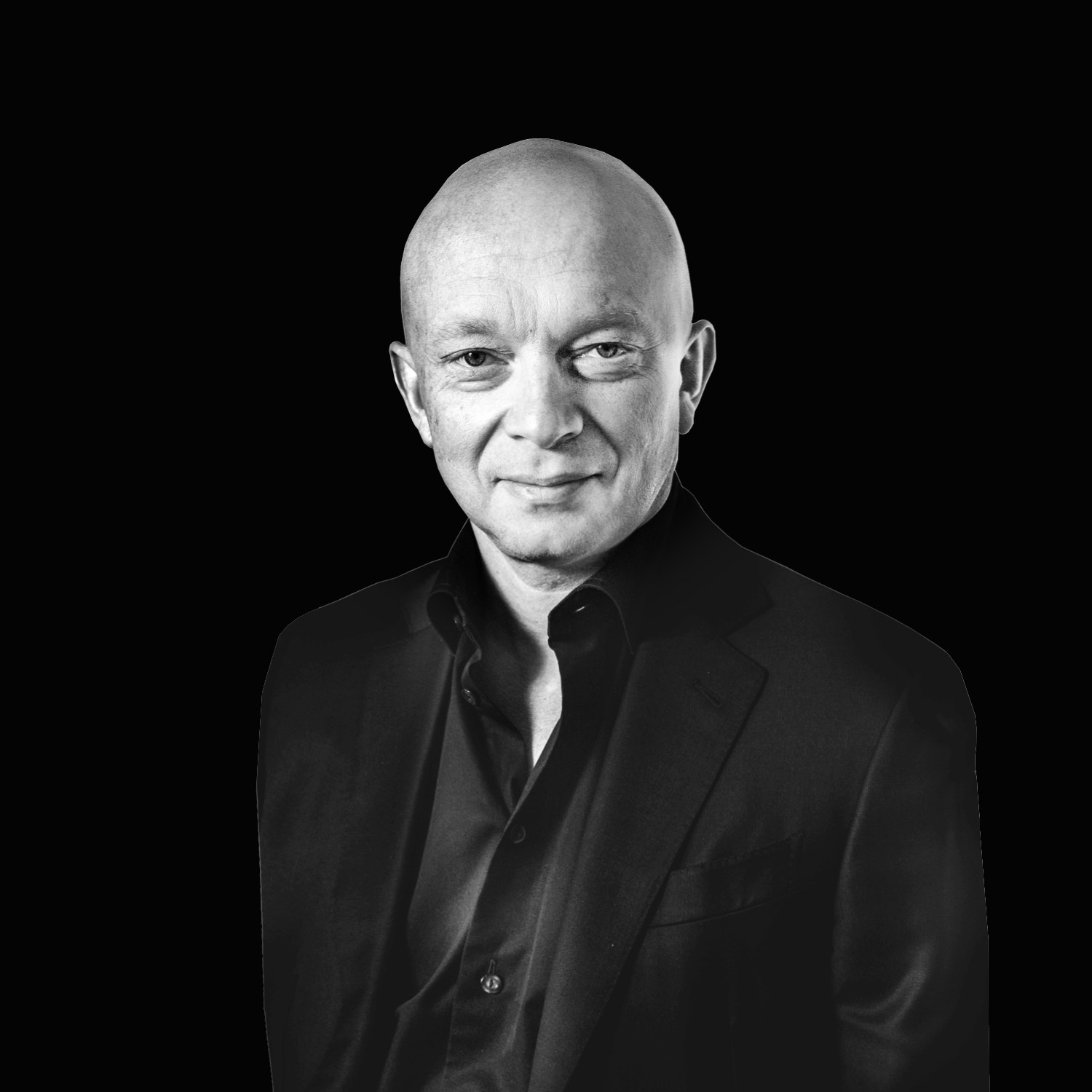
WorldQuant started the year with 4 million predictive trading algorithms and expects to have 6 million more in its library by yearend, bolstering its reputation as the rising star among quant hedge funds.
Igor Tulchinsky
Watch Video
Founder and CEO, WorldQuant LLC
Tulchinsky’s $5 billion quantitative investment company has been restricted to managing money for Millennium Management LLC, the shop that incubated it, even as Tulchinsky built an empire spanning more than 600 employees in 26 offices around the world. But now the company has launched a joint venture with Millennium to manage outside capital from some of the world’s largest institutional investors, including pension and sovereign wealth funds that are set to kick in $200 million to $300 million each. In the past year alone, WorldQuant has added an additional 100 staffers and opened offices from Cambridge, Mass., to Ho Chi Minh City.

The Swedish lawyer was central to the adoption in September of the UN Treaty on the Prohibition of Nuclear Weapons, an agreement that has 122 nations on board—and will, once 50 ratify it, become international law, creating potential financial consequences for companies and countries that help produce nukes.
Beatrice Fihn
Watch Video
Nobel Peace Prize laureate and executive director, International Campaign to Abolish Nuclear Weapons (ICAN)
Bloomberg News editor Jonathan Tirone interviewed Fihn about the state of nonproliferation and what her coalition is doing to further the cause. Edited excerpts:
Jonathan Tirone: How did your work at ICAN lead to the Nobel?
Beatrice Fihn: The treaty negotiations started in March and concluded in July, so it was a quick process. A large majority of states in the world are moving toward rejecting weapons of mass destruction, saying that nuclear weapons, under no circumstances, are acceptable. At the same time, we have countries that are going in the opposite direction, with the U.S. and North Korea threatening nuclear war, and with all nine nuclear states investing to upgrade their arsenals. The risk of nuclear war is increasing.
Security strategists in nuclear states say it’s precisely because of those threats that the arsenals are still needed.
We have to stop making nuclear weapons so special. They’re not special because of their military capabilities. They’re quite useless weapons, clumsy—their radiation harms more than the intended target. They are the opposite of modern warfare. Modern warfare is moving toward drones, autonomous weapons systems, and precision guidance, not wiping out an entire city in less than 10 seconds.
How do you respond to arms control critics who say ICAN’s approach is pollyannaish?
The nuclear weapons community has thought that solutions come through their recommendations—if they can just write enough expert papers, things will change. We know it’s politicians who make the decisions, so we have to create political pressure to get change. The community can develop all the smart recommendations, create another group of experts that will give advice to the Trump administration, but politicians aren’t going to make the difficult decision to cut down on nuclear weapons unless there is pressure from people. I’m 34, and I’m one of the older people in this movement. We’ve made a real effort to mobilize people who grew up after the Cold War and don’t have any memories of that fear of nuclear war.
What’s an example of the kind of powers granted under the new treaty?
The treaty says it’s prohibited to assist in the development of nuclear weapons. We’re going to go to the banks in countries that sign and ratify this treaty. If and when Switzerland ratifies, we can go to all the Swiss banks and say this is now prohibited, so you cannot invest in the direct production of nuclear weapons. It’s a bad investment to put money into weapons that are banned globally, even if your own country doesn’t do it.
How are you going to use the power and influence that the Nobel gives you?
We’ve got to use it to pressure parliamentarians from NATO countries overseeing NATO nuclear drills in Europe to ask, “Why are you practicing the indiscriminate slaughter of hundreds of thousands of civilians? What targets? Which cities? Moscow? Prague? What’s the battle plan?” We want to challenge modernization programs and investments.
What’s it like being a woman and having to persuade people in the male-dominated realm of arms control?
It can be frustrating. But it’s important that we not let this be an issue that only older, gray-haired men in suits with lots of technical language get to talk about.
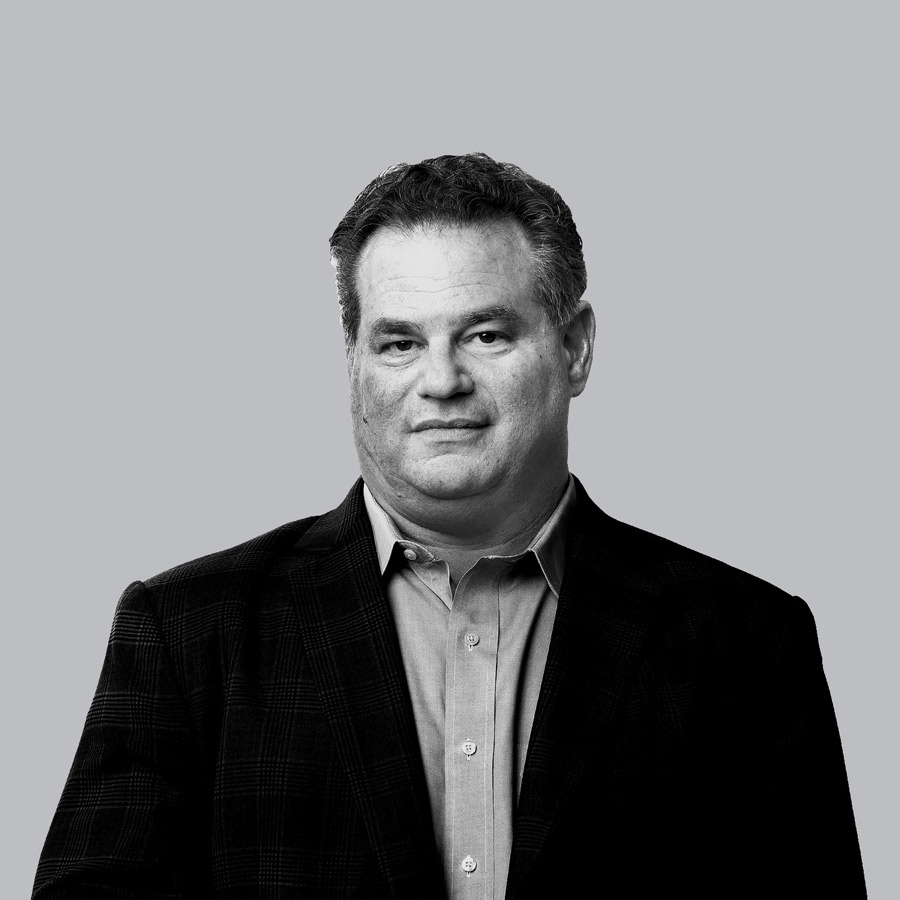
Zobler’s London hotel, the Ned, measures 320,000 square feet—an almost unheard-of size for a property that retains a luxury boutique feel—and bolsters his reputation as a catalyst for global urban revitalization.
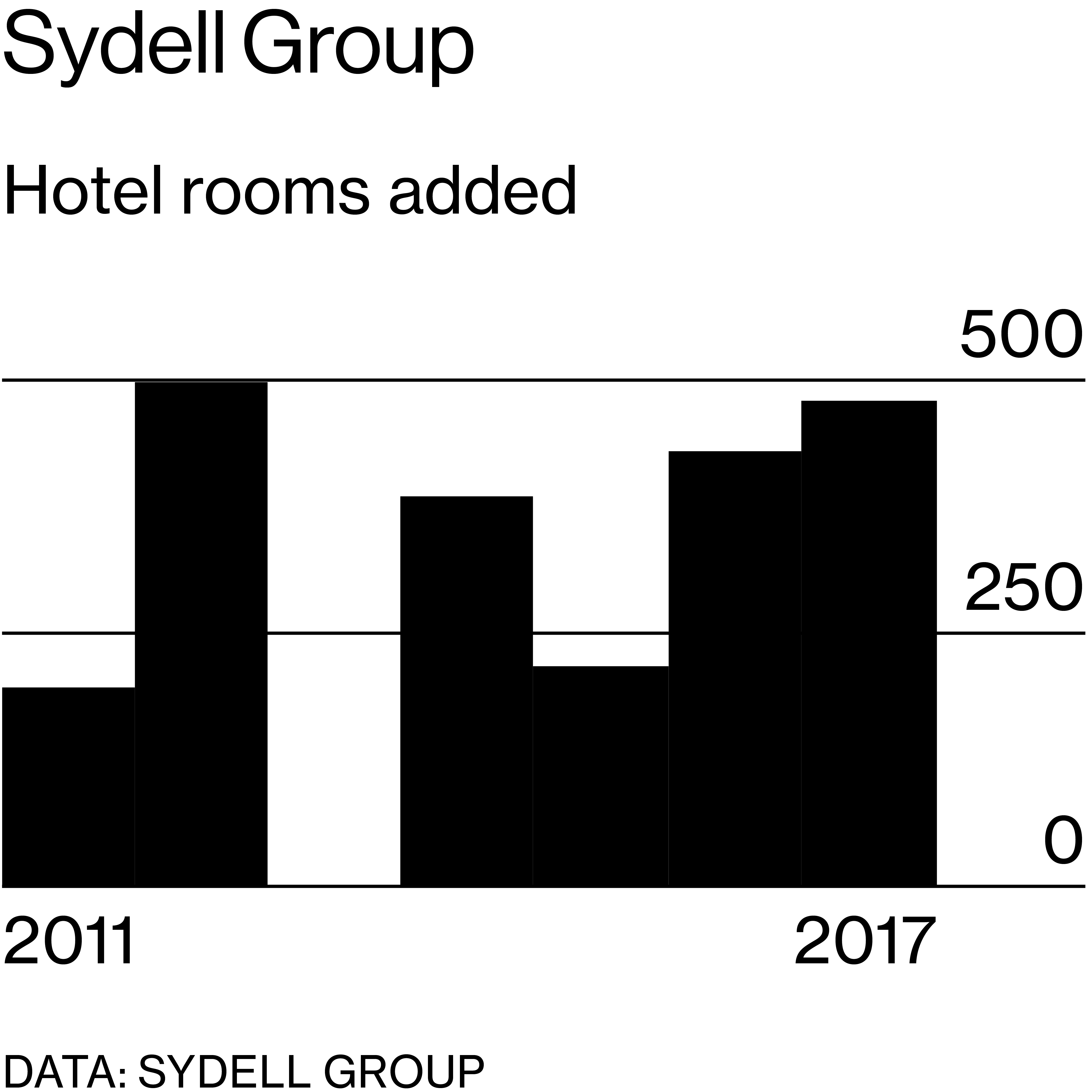
Andrew Zobler
Watch Video
Founder, Sydell Group
When Zobler rechristened the Midland Bank building in London as the Ned this April, he gave new life to a sleepy financial district. With its soaring architecture, members-only club, grooming salons, spa, and restaurant space for 2,800 daily diners, the hotel has Las Vegas-size ambitions and builds on his remake of a once-barren Manhattan stretch now home to his Ace and NoMad hotels. In January, Zobler is set to open a second NoMad, in long-overlooked downtown Los Angeles; the space, in the historic Giannini Place building, boasts 241 Italian-inspired rooms, a library, a rooftop pool, and multiple restaurants by Daniel Humm and Will Guidara of Eleven Madison Park fame. Next spring the trio will take a 3,000-room gamble on the Park MGM, which will include the biggest NoMad yet, in Las Vegas, a $450 million renovation of the former Monte Carlo casino and hotel.

His probe into whether candidate Donald Trump or his associates colluded with Russia has made him Washington’s ultimate power player; the investigation continues to ensnare advisers, including former campaign manager Paul Manafort, who’s charged with allegedly laundering $18 million and other crimes.
Robert Mueller
Watch Video
Special counsel, U.S. Department of Justice
Mueller’s investigation has been expanding since he was appointed in May, and the capital awaits the next shoe to drop. He’s collecting documents and testimony from dozens of people—Trump associates, White House aides, current and former U.S. officials—to uncover potential crimes including aiding a foreign adversary to manipulate U.S. elections, money laundering, and tax evasion. The special counsel and his team have also used plea deals, subpoenas, grand juries, and investigative tools (sealed indictments, wiretaps) to examine the business dealings of Trump’s son-in-law, Jared Kushner; Manafort, who pleaded not guilty to the charges; and former national security adviser Michael Flynn. Mueller’s findings could be devastating not only to the Trumps’ $2.9 billion business but also, given the possibility of impeachment, to the president himself.

Grab has 72 percent of the ride-hailing market in Southeast Asia, positioning the company as a key brick in the region’s anti-Uber bulwark.
Anthony Tan
Watch Video
CEO and co-founder, Grab
Tan, a Harvard Business School graduate from Malaysia, secured $2 billion from SoftBank Group Corp. and Didi Chuxing, China’s leading on-demand ride service, in July, weeks before announcing that Grab had expanded into its 87th city. Now it’s in Singapore (where it’s based) and more than 140 cities across Indonesia, Malaysia, Myanmar, the Philippines, Thailand, and Vietnam. Grab’s hyperlocal approach has won favor with motorcycle and shuttle bus services as well as riders, who like its promotional prices and loyalty program, in which passengers earn points redeemable at 150 merchants across the region.

Feeding blue-state America a nightly ration of anti-Trump red meat has expanded her audience 75 percent year over year.
Rachel Maddow
Watch Video
Host, The Rachel Maddow Show
“What a day, huh?” Maddow asked viewers on May 9 as they watched a jet carrying James Comey taxi down a runway in Los Angeles. President Trump had just fired Comey as FBI director, a major plot twist in a story that she seized upon to climb toward her largest viewership. It was one of Maddow’s highest-rated shows; her top-rated came when she teased a portion of Trump’s 2005 tax records, then faced backlash for the slow reveal. On some nights, hers is the most popular cable-news program, helping MSNBC beat CNN and Fox News, ratings that were unthinkable only a few years ago.

Ether, the digital currency Buterin created to allow users to access his ethereum blockchain software, gained more than 3,600 percent in value in 2017, a sign that investors still see the network as a potentially revolutionary tool despite security concerns.
Vitalik Buterin
Watch Video
Inventor, ethereum
Standing in front of about 2,000 developers and computer programmers at the Ethereum Foundation Developers Conference in Cancun, Mexico, in early November, Buterin, 23, talked about the future of the network. Recent upgrades “will take ethereum from the state where it is now” into something “that will be used by millions of people,” he said, wearing gray shorts and a green T-shirt with a picture of internet meme dog Doge. Is he right? Maybe. Last year hackers stole $55 million of ether, and soon after Buterin’s speech, $171 million of it and an unknown amount of other cryptocurencies were lost when the funds were accidentally frozen.
Yet the potential for ethereum to upend how computers move money continues to attract Wall Street’s attention. Already it’s altering how companies fund development: Ether is a popular vehicle for buying into initial coin offerings, or ICOs, which bypass the traditional routes of venture capital and initial public offerings (and, to date, securities regulation). It’s helped blockchain startups raise more than $3 billion this year.
At the conference, Buterin explained that the network went through a security upgrade in October. He’s working on a plan to cut costs for verifying transactions—because of how many computers connect to form the blockchain, estimates put electricity costs at about $1 million a day—and another one to slash transaction times. A year ago, Buterin said, it was hard to see all of this coming to fruition. But, he added, “a lot of things have solidified.”

His acquisition of Whole Foods Market Inc. for $13.7 billion showed that Bezos isn’t content with Amazon merely being the No. 1 online retailer.
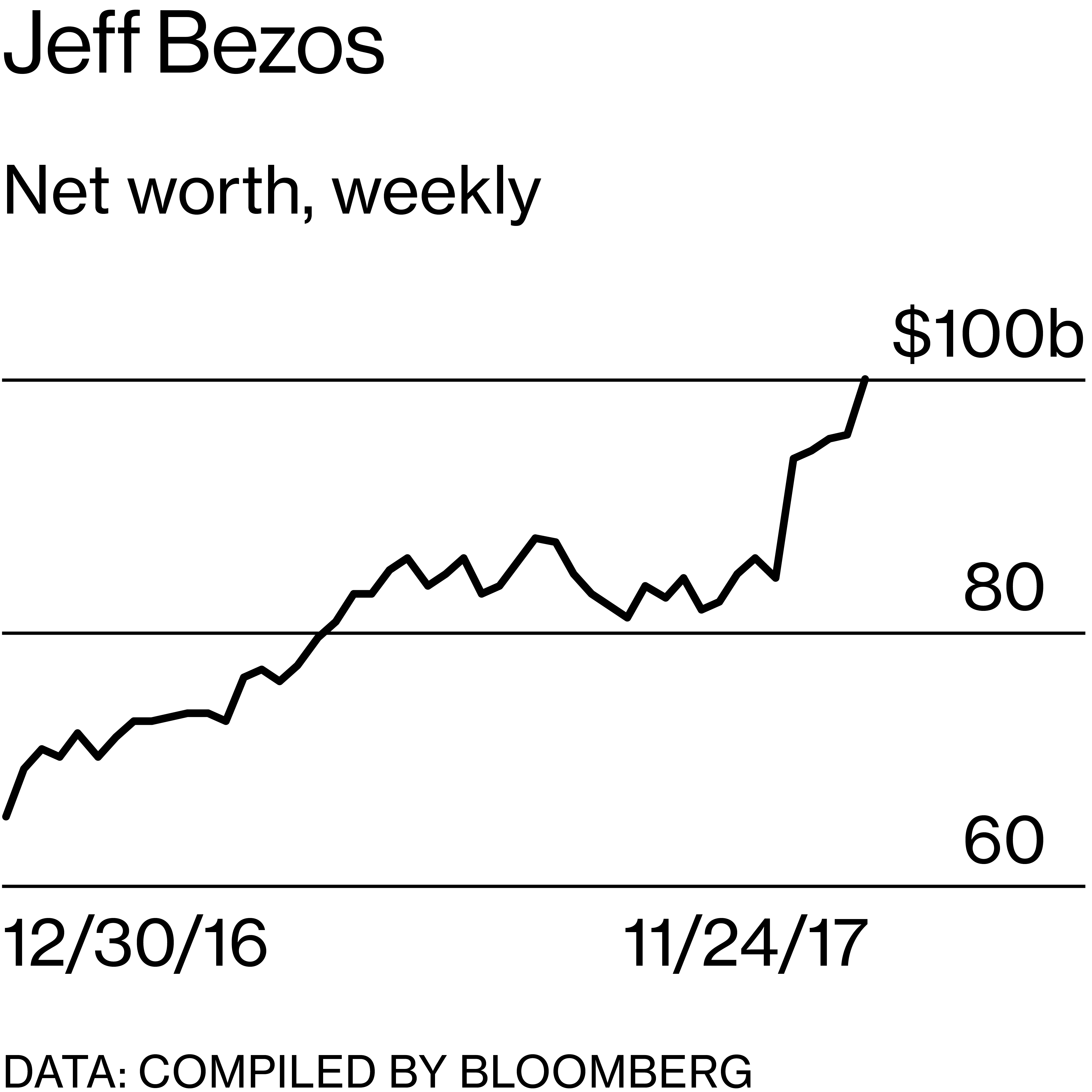
Jeff Bezos
Watch Video
CEO, Amazon.com Inc.
On June 16, within hours of the Whole Foods purchase, Wal-Mart, Costco, Target, Kroger, and a long list of companies potentially affected by the move lost a combined $30 billion in value. It was a strong signal that Wall Street doesn’t think anyone can halt Bezos’ many ambitions. Principal among them: toppling Wal-Mart Stores Inc. to make his company the biggest retailer on the planet—so big, in fact, that he has mayors across the U.S. and Canada tripping over themselves to land Amazon’s second headquarters and the estimated 50,000 jobs and $5 billion investment that will come with it. When he’s not increasing Amazon’s reach, Bezos is working on other missions, such as sending tourists into space in Blue Origin rockets and keeping the heat on President Trump through his ownership of the Washington Post.
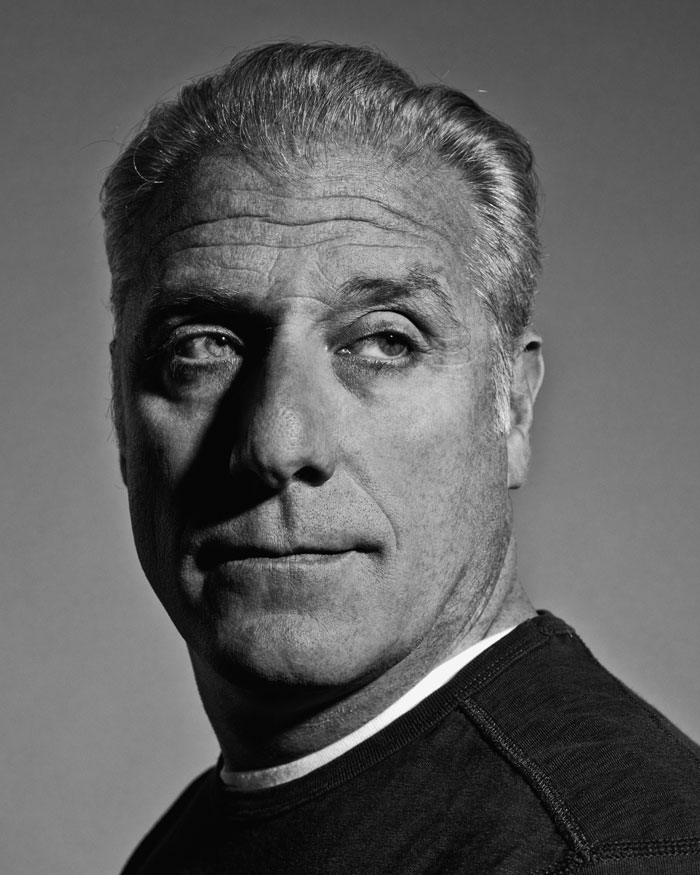
Paul Gaudio
Watch Video
Global creative director, Adidas AG
Gaudio’s inventiveness led Adidas to overtake Nike Inc.’s Jordan brand for the No. 2 spot in U.S. sneaker sales, a rapid rebound for the German sportswear giant.
Adidas is cornering the market on cool, thanks to Gaudio’s ability to meld technical function with street style. Nowhere is his touch more evident than in sales of the sleek UltraBoost sneaker, which, with Adidas’s retro-hip Stan Smith, helped sales surge almost 14 percent through the first three quarters. Nike in that time managed only a roughly 3 percent sales gain and seems to be searching for new places to sell the swoosh: It’s offering shoes via Amazon.com Inc. as Foot Locker Inc. and other retailers stock up on three stripes.

Luhan Yang
Watch Video
Co-founder, EGenesis
Using Crispr gene-editing technology, EGenesis overcame a major hurdle on the path to animal-to-human organ transplantation, removing 62 viruses that humans are susceptible to from 40 pig embryos.
I’m on a mission to create a world where there are no organ shortages. In the U.S., over 100,000 people are on a waiting list, and only about 20 percent to 30 percent will get one.
The idea of xenotransplantation, or cross-species transplantation, has been around for decades. In the 1990s, there was a huge failure to overcome the compatibility issues that arise with trying to put a pig organ in a human body. Because of public health concerns, the WHO and USDA shut down all clinical trials, and the field has been silent.
There are two major barriers to xenotransplantation using pigs. One is viruses known as PERVs. PERVs reside in the pig genome and can integrate into the human genome. In 2015 we showed that we could use Crispr gene editing to eradicate 62 PERVs in pig cells. But one of the biggest questions was whether the PERVs played a crucial function in the pig. For the first time, in 2017, we answered the question: They’re dispensable.
It took hundreds of trials to get to a viable, “PERV-inactive” pig. Too many edits to a pig’s cells will stress out the cells, leading them to essentially commit suicide. We created a chemical cocktail to tell the cell, “It’s OK, don’t worry.” The first pig was born in China in March. We’re testing them to see if they have normal physiology and can produce offspring that preserve the genetic modification.
The other barrier is that, even though we know how to remove PERVs, there’s still the possibility that a human host could reject a pig organ. It’s still early days. We’re talking with the FDA about how to test our organs’ compatibility. We’ve just finished raising a $38 million Series A, and while we don’t have a clear path to market, we always keep our goal in mind: to deliver an organ. We’re not doing science for intellectual purposes.
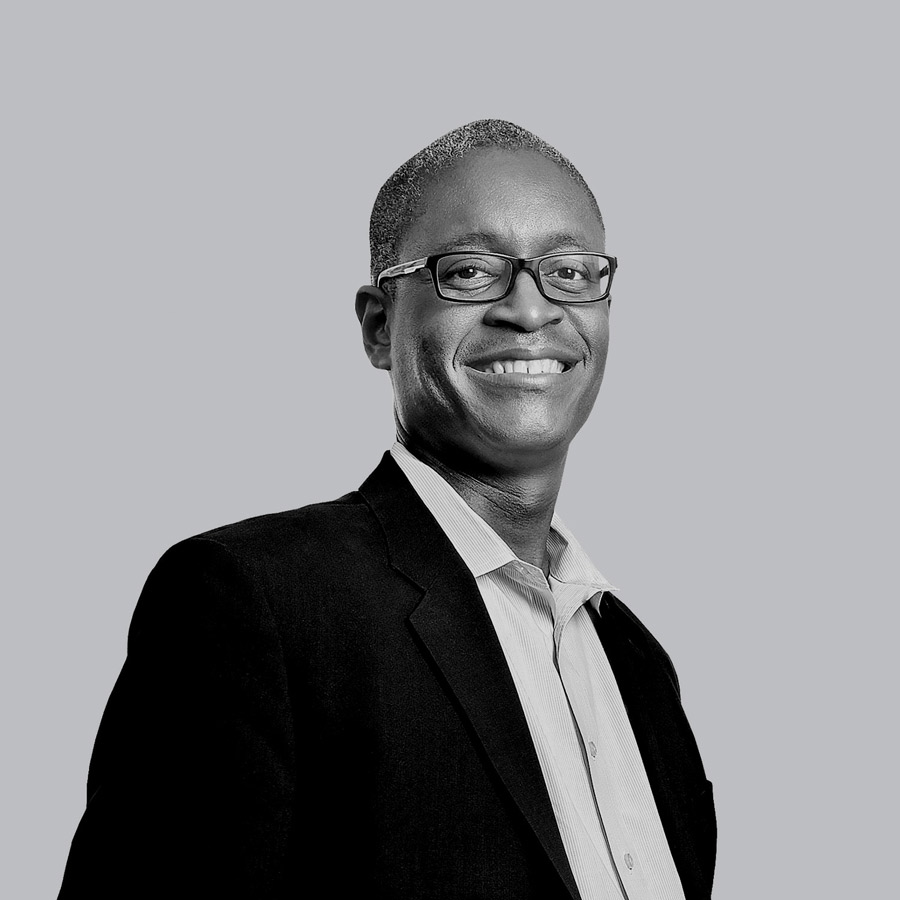
In June, Bostic became the first black and first openly gay person to head one of the 12 Federal Reserve Banks, committing to an agenda of workforce development and financial literacy.
Raphael Bostic
Watch Video
President and CEO, Federal Reserve Bank of Atlanta
While in the Obama administration, the University of Southern California economist fought housing discrimination against gays and racial minorities; he broke barriers when he was appointed by the board of the Atlanta Fed to oversee a district that primarily comprises Florida, Georgia, and Alabama. “I am doing a lot of traveling this first year,” Bostic said in September at a speech in Atlanta. “Part of my goal is to get out in front of people who haven’t necessarily seen the Fed before, have not really had people talk to them about how the economy is working. That is critical for the Federal Reserve.”
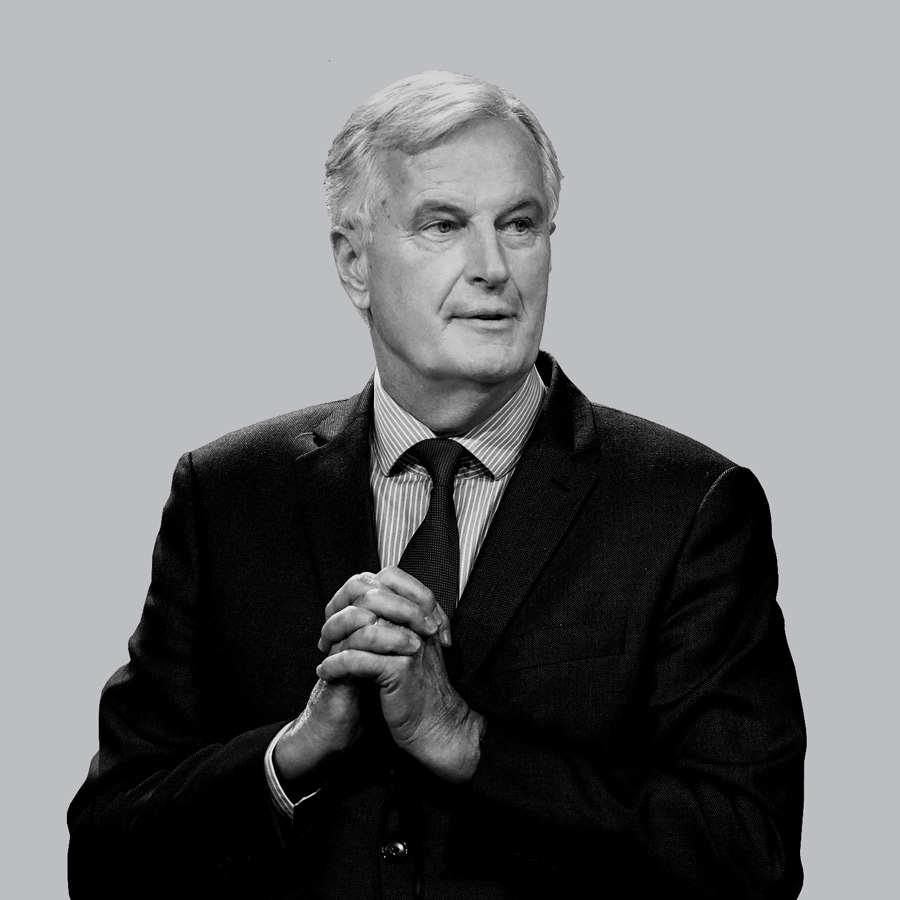
The former French foreign minister has united Europe’s fractious governments around a set of principles for Britain’s withdrawal from the EU—primarily a demand that the U.K. fulfill its financial obligations, which could entail more than €50 billion ($58.7 billion) in transfers to member nations—and adhered to them doggedly.
Michel Barnier
Watch Video
European Union chief Brexit negotiator
“Unity is the first condition for reaching an agreement,” Barnier said before talks started, to the chagrin of Brits who hoped to get a better deal by exploiting divisions. He spent a half-year meeting with German Chancellor Angela Merkel and other leaders, winning their trust before staring down his British counterpart. With decades of experience in high-level European politics, Barnier knows the importance of compromise, but thus far almost all the concessions have come from London. Die-hard Brexit supporters say his approach could backfire, though, if it spurs the U.K. to walk away from the table.

Thanks mostly to its national TV deal, the NBA saw revenue for the season ending in June grow an impressive 23 percent from the previous year, another sign that Silver’s stewardship has put the league squarely in the vanguard of professional sports.
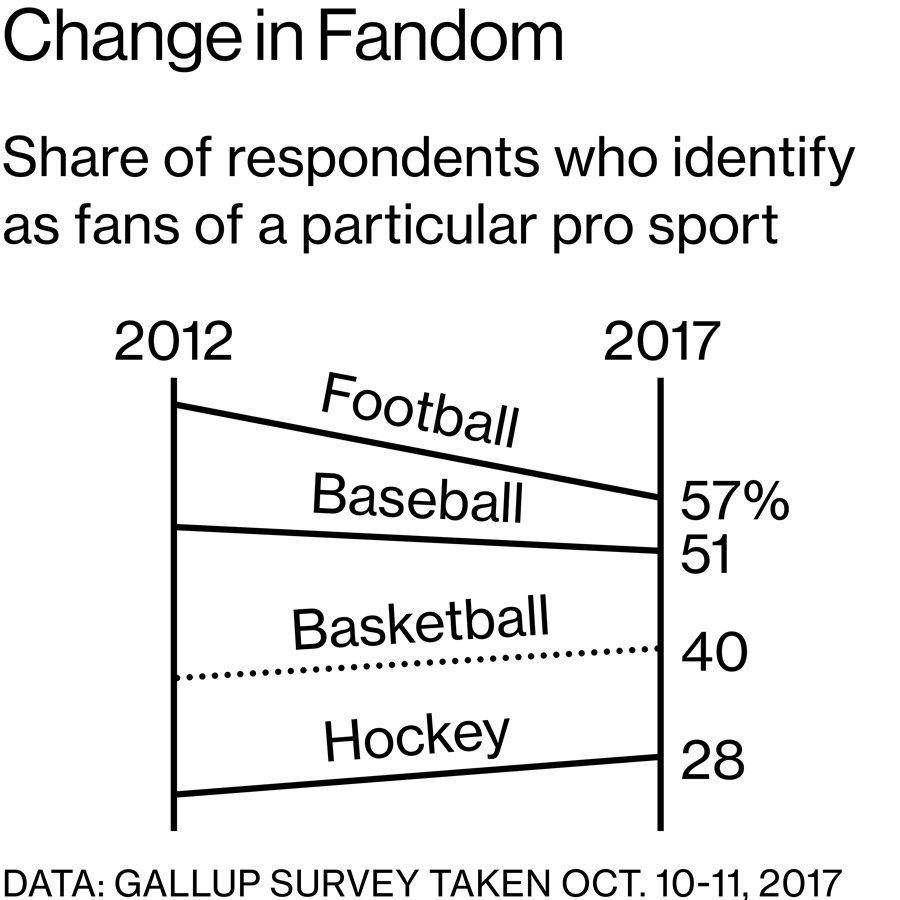
Adam Silver
Watch Video
Commissioner, National Basketball Association
The 2017 NBA Finals were the most-watched since 1998, with an average live audience of 20.8 million. And though it’s hard to attribute that to the commissioner and not the third round of Steph Curry vs. LeBron James, Silver has smartly promoted the league’s talent and storylines while keeping a low public profile. His willingness to explore financial opportunities has helped the NBA thrive; this season, teams will wear ads on their jerseys. Most of the deals have been for about $5 million annually, but the champion Golden State Warriors got $60 million for three years from Japanese tech holding company Rakuten Inc. The NBA is also the only league to offer a la carte streaming, giving out-of-market viewers the option to watch single games online for $7, and it’s set up a regular schedule of virtual-reality productions.

Barra saved GM $1 billion in annual capital expenses by getting the company out of Europe and India and redirecting that money to new technologies and markets.
Mary Barra
Watch Video
CEO, General Motors Co.
Breaking with GM’s longtime goal of being the world’s biggest automaker, Barra has shrunk the company by shedding money losers. She sold GM’s Adam Opel AG to Groupe PSA in a $2.3 billion deal, exiting a European market that had cost GM billions of dollars for almost 20 years, and stopped selling Chevy vehicles in India, where profits also proved elusive. Instead, she’s plowing money into roboticization—for example, spending almost $1 billion to buy self-driving-car software company Cruise Automation, which recently started building GM’s self-driving electric Chevy Bolt.

Jerry Brown
Watch Video
Governor, California
In July, Brown signed legislation to extend the state’s cap-and-trade program through 2030, ensuring that California would continue to generate revenue selling emissions permits—one think tank in San Francisco puts it at $24 billion—and further cementing his role as the U.S. politician most aggressively combating climate change.
If any doubt lingered about who would lead states’ opposition against President Trump, Brown quashed it within hours of the White House’s June announcement that the U.S. will be withdrawing from the Paris climate agreement. “This is an insane move,” the 79-year-old Democrat said. Brown has united a group of governors vowing to uphold Paris, met with President Xi Jinping of China to discuss carbon emissions and alternative energy, and represented state and local governments at this year’s United Nations conference on global warming. California is the country’s top driver of economic growth and has stronger anti-emissions laws than any state, proving Brown’s argument that being pro-business and pro-environment go hand in hand.

Tesla’s Fremont, Calif., factory could be turning out 5,000 Model 3 sedans a week by spring as part of Musk’s ambition to transform us into an electric-car-driving, spaceship-traveling species.
Elon Musk
Watch Video
CEO, Tesla Inc. and Space Exploration Technologies Corp.
The July arrival of the new sedan, which starts at $35,000, transformed Musk’s upstart into a real threat to Detroit and Stuttgart. Even after badly missing third-quarter manufacturing targets (“production hell,” as Musk described it), Tesla has a market capitalization of more than $50 billion, not far from General Motors Co.’s. And in December, SpaceX, his rocket venture, plans to launch its latest spacecraft, Falcon Heavy, which the company expects will have the cargo capacity to help it dominate the global satellite market. But that’s a mere steppingstone to Musk’s real goal, Mars. Earlier this year, he announced plans for an even bigger rocket to establish the beginnings of a Mars colony by 2022, a timeline he concedes is “aspirational.” The project’s code name: Big F---ing Rocket.

Bennett won three Grammys for Coloring Book, his self-released album that’s stayed on the Billboard 200 for more than 75 weeks and has been streamed more than 1.5 billion times, according to Nielsen.
Chancelor Bennett (aka Chance the Rapper)
Watch Video
Musician
It didn’t matter that the Chicago-born artist had never been signed to a record deal or made his music available for sale in traditional formats: Bennett won best new artist, best rap album, and best rap performance at the Grammy Awards in February with his streaming-only record. The following month, he did something else that’s unusual in the music business: He talked frankly about money. When bloggers challenged his claims of being untainted by corporate affiliations because he’d let Apple Music offer Coloring Book exclusively to subscribers for two weeks in 2016, the rapper tweeted that he’d been paid “half a mil” by the company but posted his album for free on SoundCloud after the window expired. Now Bennett, 24, is trying to transfer his stardom from the stage to the screen. Boutique studio A24 is slated to release Slice, in which the rapper stars as a Chinese-food delivery man turned werewolf.

In the months before Ortega Díaz’s ouster in August, her office started about 2,000 investigations into violence and rights abuses surrounding antigovernment demonstrations throughout the country, opening up a deep fissure in Chavismo.
Luisa Ortega Díaz
Watch Video
Former chief prosecutor, Venezuela
As bloody protests and a crippling recession rocked Venezuela, Ortega Díaz upended the nation’s political landscape by speaking out against President Nicolás Maduro’s consolidation of power, denouncing a “brutal repression” that’s claimed more than 120 lives and left hundreds more behind bars. She’s since fled the country and is traveling across Latin America, meeting with regional leaders as she brings corruption allegations against the Maduro administration, including the president himself. Formerly the country’s top law enforcement official and a fierce loyalist who regularly brought charges against government foes, she broke ranks with Maduro, Hugo Chávez’s successor, when he moved to rewrite Venezuela’s charter and intensified a crackdown on dissent, quashing protests and jailing prominent opponents. She levied charges not only against members of the police and top government officials but against the armed forces, while filing motions to stop the overhaul of the constitution. Ortega Díaz is an uncomfortable ally for Venezuela’s opposition, though, with many pointing to how in 2014, during the last major wave of unrest, she oversaw the incarceration of activists and politicians—most notably opposition leader Leopoldo López.
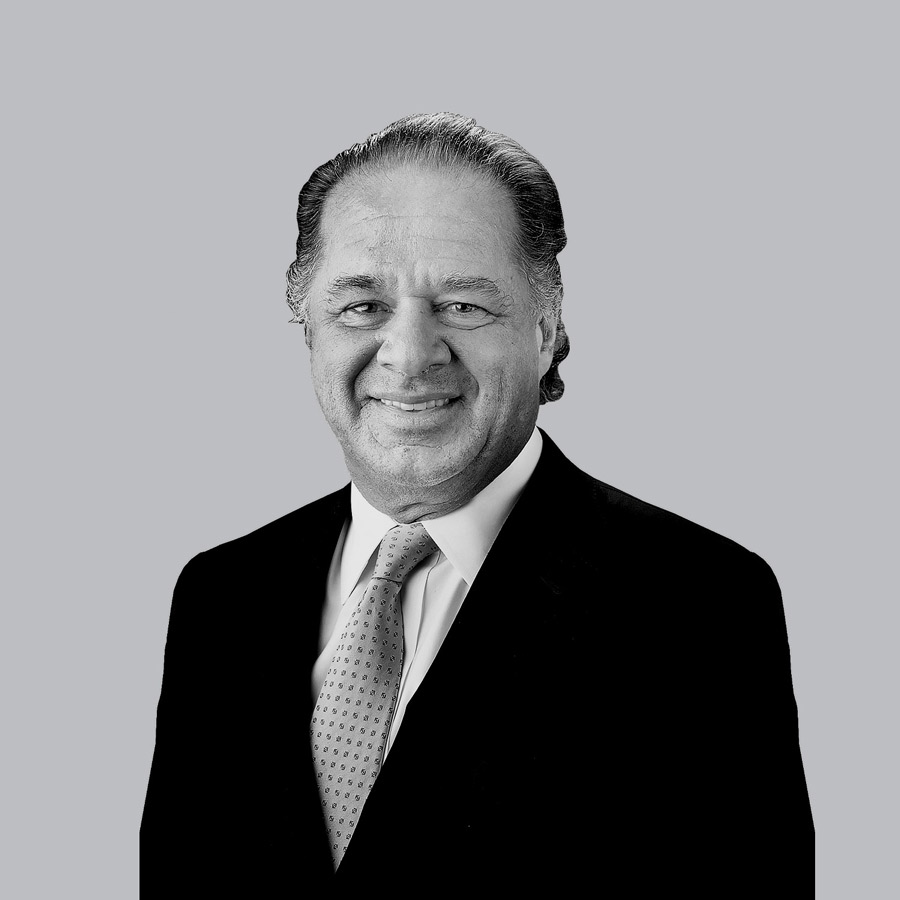
Tellurian’s stock has rallied about 800 percent since August 2016, when Souki took the first steps toward positioning the company as one of the U.S.’s main shale gas exporters.
Charif Souki
Watch Video
Chariman, Tellurian Inc.
The billionaire evangelist of liquefied natural gas exports began offering customers fixed prices this spring, a transformative approach given that for decades producers have required buyers to sign contracts linking costs to the price of oil. His goal: to acquire enough customers to finance 20 liquefaction plants at his $16 billion Louisiana terminal. To that end, Souki also dropped his price from $8 per million British thermal units to $6 and started taking on equity investors who get 1 million tons of the superchilled fuel annually for a $1.5 billion stake.

The activist investor prompted major U.S. companies to close the gender pay gap, with Starbucks Corp. saying women earn 99.7 percent of what men earn doing similar work.
Natasha Lamb
Watch Video
Director of equity research and shareholder engagement, Arjuna Capital
After persuading some of the largest U.S. tech companies to embrace gender pay equality, Lamb targeted banks and consumer businesses. Nike Inc. and Costco Wholesale Corp. say they’re taking steps to close the gap. Lamb, whose socially responsible fund is worth about 20 percent more now than it was a year ago, filed the first shareholder resolutions at Google and Facebook Inc. asking the companies to report on how they will protect against fake news and address pay equity, an issue she raised with them in 2016. (She filed a fake news resolution this year with Twitter Inc., too.) Google and Facebook rejected her proposals, but Facebook’s new mission statement—giving people power “to build community and bring the world closer together”—reflects her recommendations, even if the company doesn’t attribute the language to Lamb.

Lau helped steer Tencent to a market capitalization of more than $400 billion, making it one of the 10 largest companies in the world.
Martin Lau
Watch Video
President, Tencent Holdings Ltd.
The top adviser to Tencent’s reclusive CEO, Pony Ma, Lau is pushing the company beyond its core product, the WeChat mobile service, now ubiquitous in China. Tencent’s ambitions are becoming more diverse, and Lau’s signature investments are helping the business meet them: He’s redefining how investors, competitors, and customers think about Tencent by having the company take a $1.8 billion stake in Tesla Inc., work with Nintendo Co. to adapt its hit game Honor of Kings in Japan and the U.S., buy an undisclosed equity stake in Chinese-food delivery service Meituan Dianping, and acquire about 12 percent of Snap Inc.

Michele’s bold, Instagram-adored styles sent moribund sales at the fashion house skyrocketing more than 45 percent this year.
Alessandro Michele
Watch Video
Creative director, Gucci
Playful color, daring florals, intricate embroidery: Michele, who started in his role in 2015, is ushering in a new era at Gucci, pushing the label back to fashion’s forefront. In an industry dominated by the limited palette and mass-market churn of fast fashion, he’s adding an injection of artistry—deploying what his boss, Kering Chairman and Chief Executive Officer François-Henri Pinault, called “creative audacity.” Pinault credits Michele and Gucci CEO Marco Bizzarri with the turnaround.

Facebook’s revelation that fake Russia-linked accounts reached 126 million people from June 2015 to August 2017 showed the depths of the information warfare campaign being waged through social media in the U.S.
Russian botnets
Watch Video
The scope of Russian interference before, during, and after the 2016 presidential election is only starting to emerge. In late October, Facebook Inc. disclosed to Congress that Russian agents paid $100,000 for more than 3,000 Facebook and Instagram ads to promote pages that disseminated 80,000 pieces of content. Twitter Inc., which at first identified 201 accounts connected to the Facebook campaign, expanded that number to 2,752. These discoveries pose an existential crisis for social media companies, which don’t want to crimp growth and traffic by policing too strictly—and yet, by not cracking down, leave room for Russian influencers to sow misinformation and social discord. For example, the Facebook ads were directed toward thorny issues such as immigration and Black Lives Matter; meanwhile, some 600 Twitter accounts promoting conspiracy theories about American government corruption have been linked to Russia by the Alliance for Securing Democracy, an initiative aimed at exposing interference.
The Usual Suspects
The people below could make any list of influencers, anytime, which is why we've given them their own.
- Bernard Arnault
- Lloyd Blankfein
- Sergey Brin
- Warren Buffett
- Tim Cook
- Pope Francis
- LeBron James
- Xi Jinping
- Kim Jong Un
- Jack Ma
- Emmanuel Macron
- Theresa May
- Angela Merkel
- Lakshmi Mittal
- Larry Page
- Vladimir Putin
- Shonda Rhimes
- Sheryl Sandberg
- Donald Trump
- Serena Williams
- Oprah Winfrey
- Jeff Zucker
- Mark Zuckerberg
